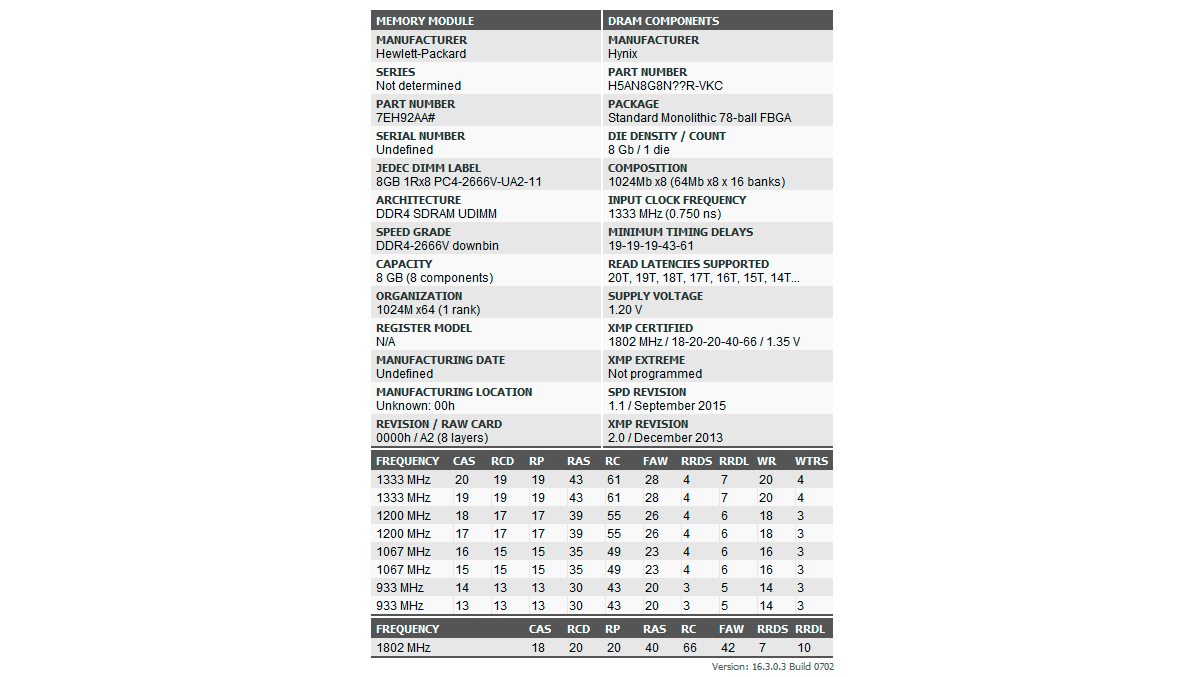Tom's Hardware Verdict
If you can look past its price tag and scanty warranty, the HP V8 DDR4-3600 C18 should suffice if you aren't after the ultimate performance for your system.
Pros
- +
Acceptable performance within its category
- +
Hynix C-die ICs for overclocking
Cons
- -
Loose timings
- -
Five-year warranty
- -
Costs more than similar-specced kits
Why you can trust Tom's Hardware
The odds of HP being the first name that comes to your mind when you think of memory are pretty slim. Admittedly, computer memory isn't HP's strongest suit, but that hasn't impeded the tech giant from trying to strengthen the company's position in the memory market. However, HP doesn't actually deal directly in the memory business: BIWIN Storage Technology, one of HP's business partners, produces the memory under license from HP.
HP's current memory portfolio includes the V2, V6 and V8 lineups. The V8 is the latest addition to the product stack and marks a decisive change in the company's focus. With a revamped look and RGB lighting, the V8 series targets the ever-so-demanding crowd of hardware enthusiasts and gamers.
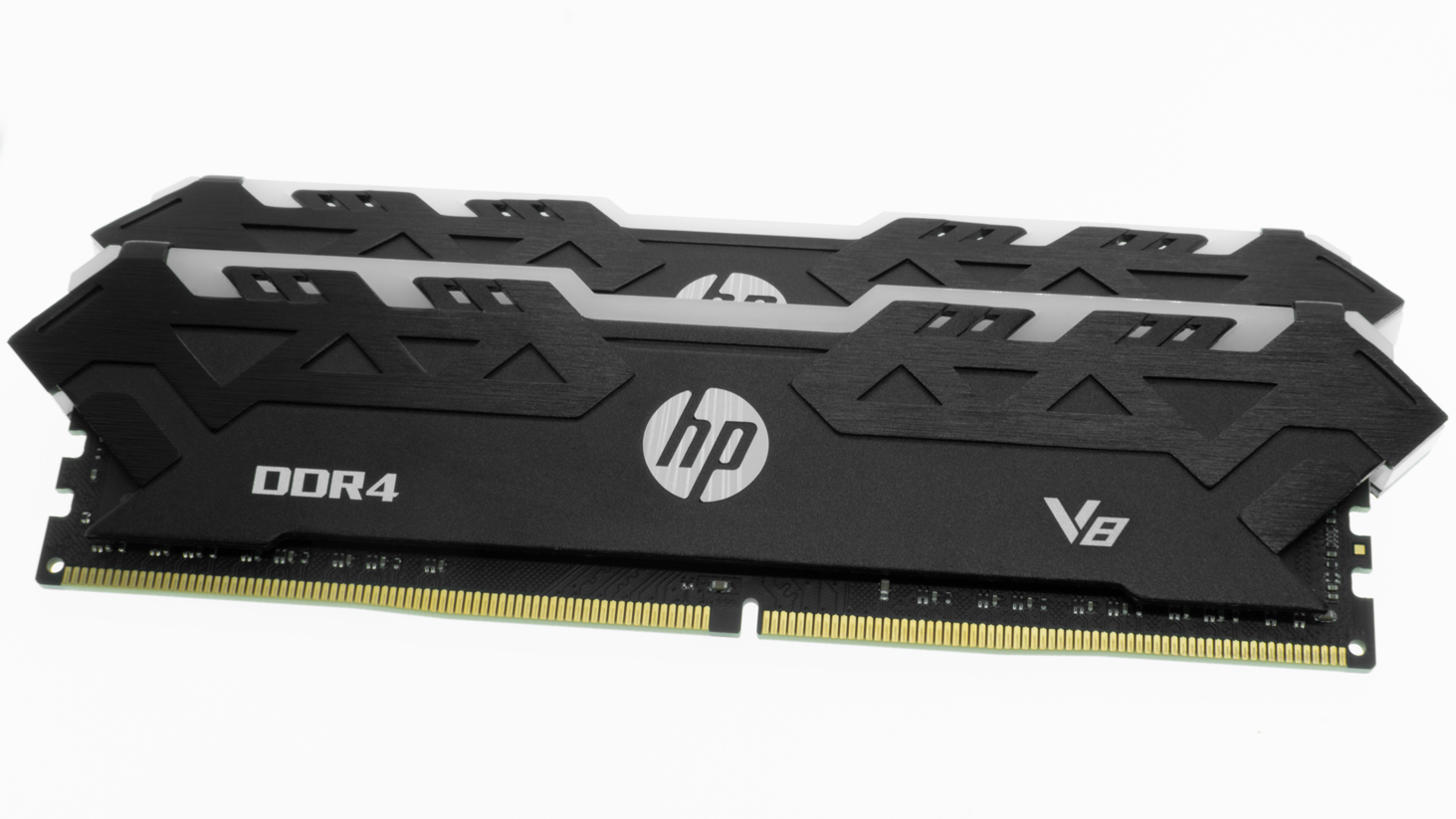
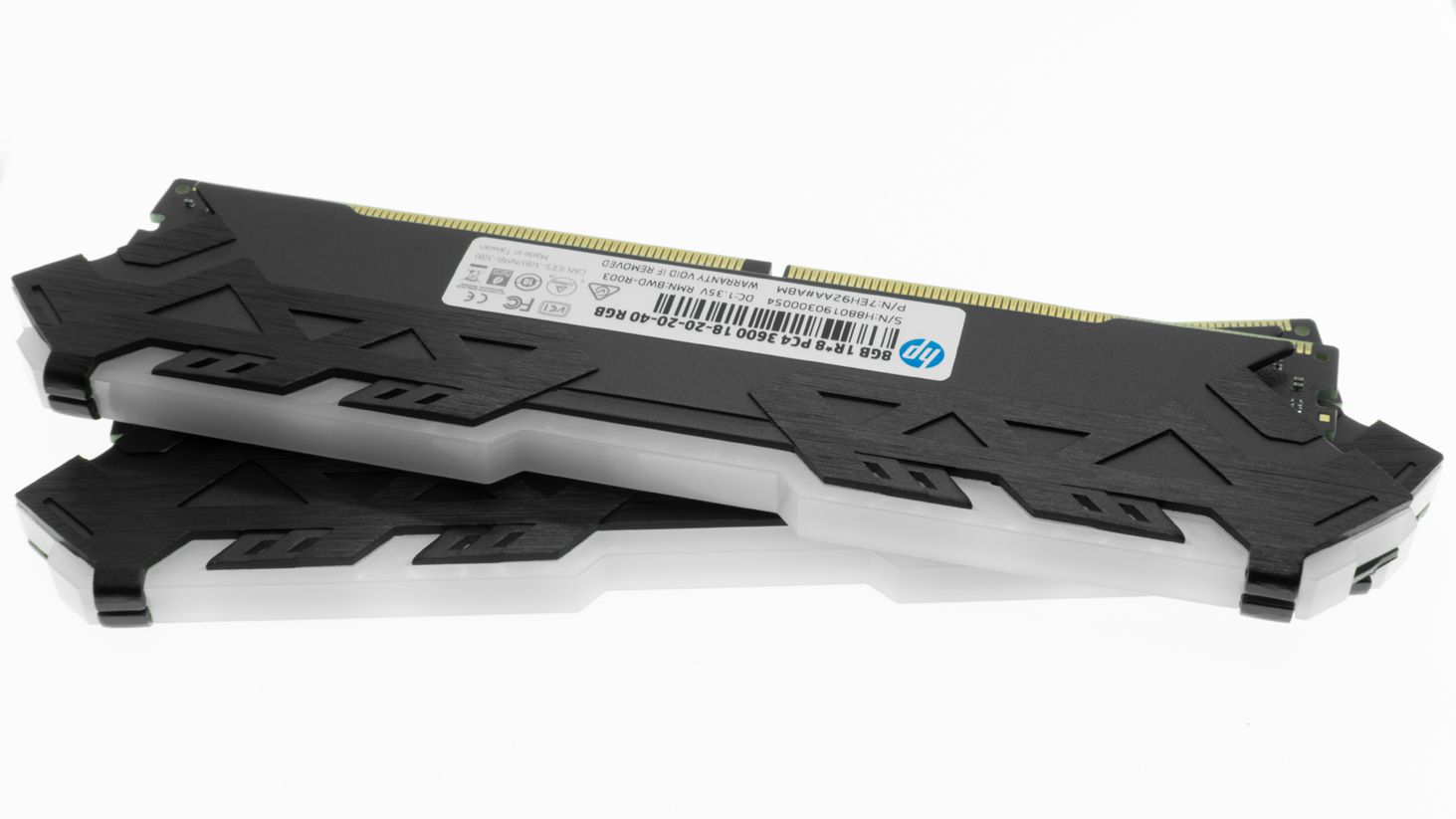
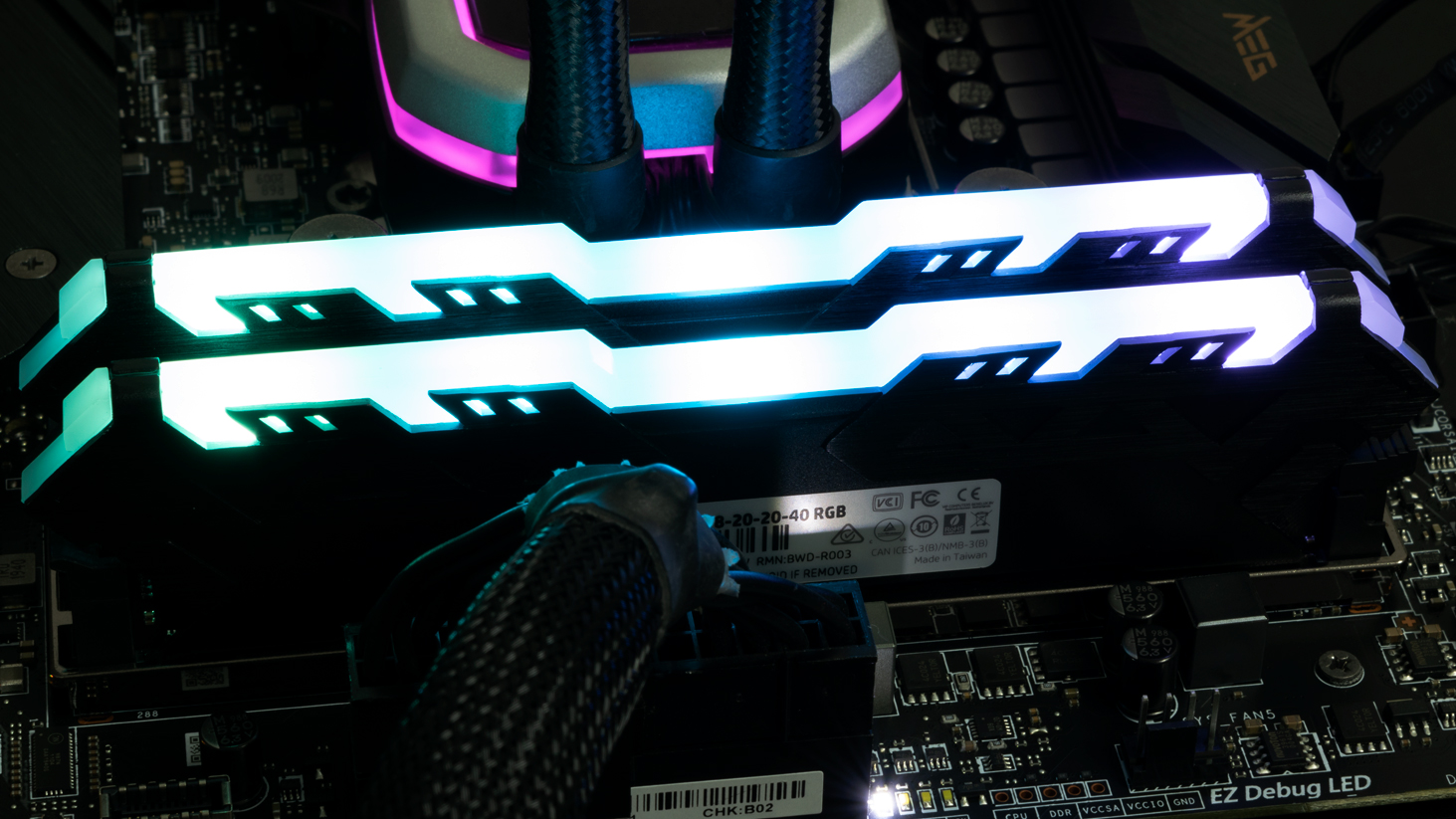
The V8 memory modules come with a nice aluminum heat spreader that takes inspiration from a diamond design. The black exterior is a cross between a matte and a brushed finish. One thing to note is that the wing-shaped edge does get in the way when you're trying to release the memory module from the memory slot. You don't have to worry about compatibility with CPU air coolers, though, because the V8 only measures 40mm (1.57 inches) tall. For comparison, the prior V6 comes in at 37mm (1.46 inches), so the V8 is only a tad taller.
Following the RGB trend, HP added a customizable RGB LED bar to the V8 for some pizzazz. Proprietary software to control the V8's illumination isn't included, which could either be a blessing or a letdown. Thankfully, the V8 is compatible with Asus Aura Sync, Gigabyte RGB Fusion 2.0, MSI Mystic Light Sync, and ASRock Polychrome Sync, so you can use your motherboard's included software to play with the V8's lighting.
For the review, Multipointe Channel Solutions (MCS), another one of HP's business partners, sent us two individual sticks of V8 DDR4-3600 CL18 (7EH92AA#ABM) memory. However, it would be best to look for the standard, dual-channel package (8MG07AA#ABC) to avoid mixing and matching memory modules. Regardless of the presentation, the V8 memory modules sport a black eight-layer PCB with a single-rank design. Under the heat spreader, you'll find the V8 with Hynix H5AN8G8NCJR-VKC (C-die) integrated circuits (ICs).
At boot, the V8 DDR4-3600 memory runs at a default memory speed of DDR4-2666 with 19-19-19-43 timings. The sole XMP profile on the memory modules activates DDR4-3600 mode at 18-20-20-40 timings with a 1.35V DRAM voltage. For more on timings and frequency considerations, see our PC Memory 101 feature, as well as our How to Shop for RAM feature.
Comparison Hardware
| Memory Kit | Part Number | Capacity | Data Rate | Primary Timings | Voltage | Warranty |
|---|---|---|---|---|---|---|
| G.Skill Trident Z Neo | F4-3600C14D-16GTZNB | 2 x 8GB | DDR4-3600 (XMP) | 14-15-15-35 (2T) | 1.45 Volts | Lifetime |
| Adata XPG Spectrix D60G | AX4U360038G14C-DT60 | 2 x 8GB | DDR4-3600 (XMP) | 14-15-15-35 (2T) | 1.45 Volts | Lifetime |
| Team Group T-Force Xtreem ARGB | TF10D416G3600HC14CDC01 | 2 x 8GB | DDR4-3600 (XMP) | 14-15-15-35 (2T) | 1.45 Volts | Lifetime |
| Adata XPG Spectrix D50 | AX4U360038G18A-DT50 | 2 x 8GB | DDR4-3600 (XMP) | 18-20-20-42 (2T) | 1.35 Volts | Lifetime |
| HP V8 | 7EH92AA#ABM x 2 | 2 x 8GB | DDR4-3600 (XMP) | 18-20-20-40 (2T) | 1.35 Volts | 5 Years |
| Lexar DDR4-2666 | LD4AU008G-R2666U x 2 | 2 x 8GB | DDR4-2666 | 19-19-19-43 (2T) | 1.20 Volts | Lifetime |
Our Intel test system consists of an Intel Core i7-10700K and MSI MEG Z490 Ace with the 7C71v11 firmware. Our AMD testbed has an AMD Ryzen 5 3600 and MSI MAG B550 Tomahawk that's on the 7C91vA1 firmware. Regardless of the platform, an MSI GeForce RTX 2080 Ti Gaming Trio handles the display duties.
Get Tom's Hardware's best news and in-depth reviews, straight to your inbox.
Intel Performance
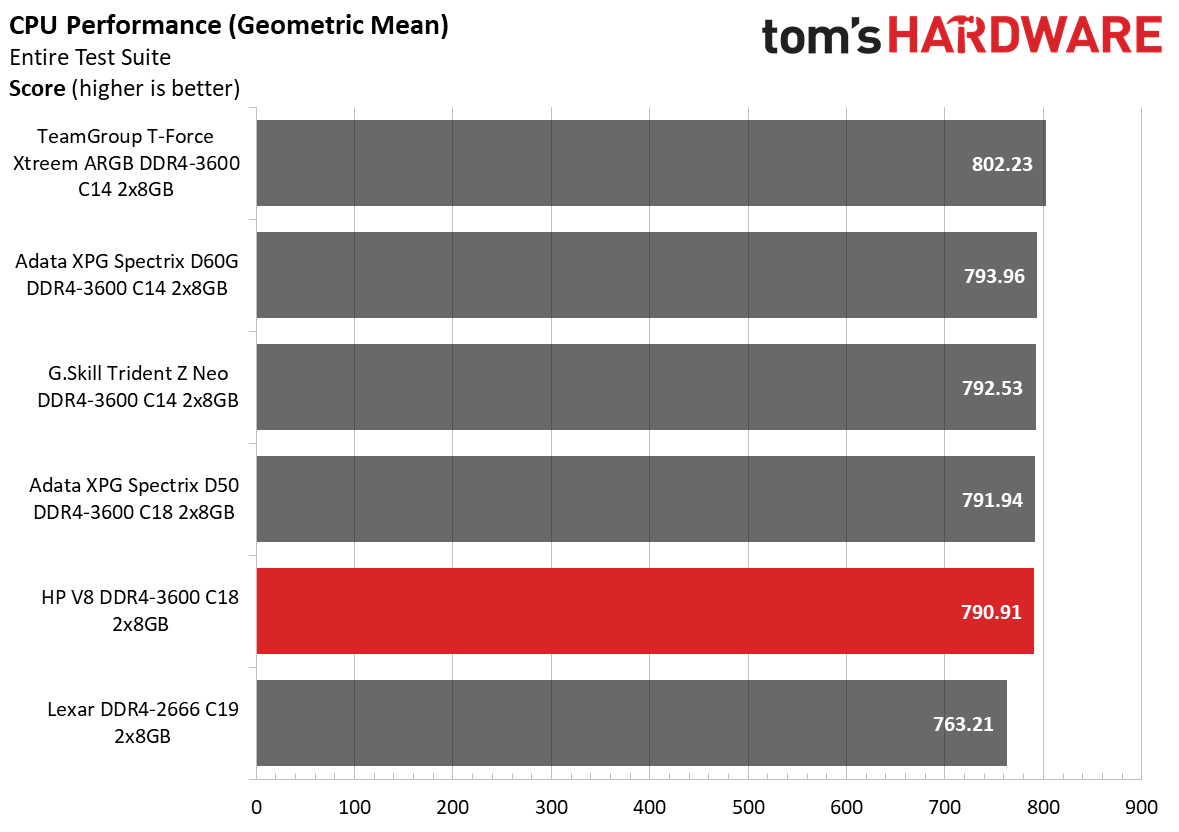
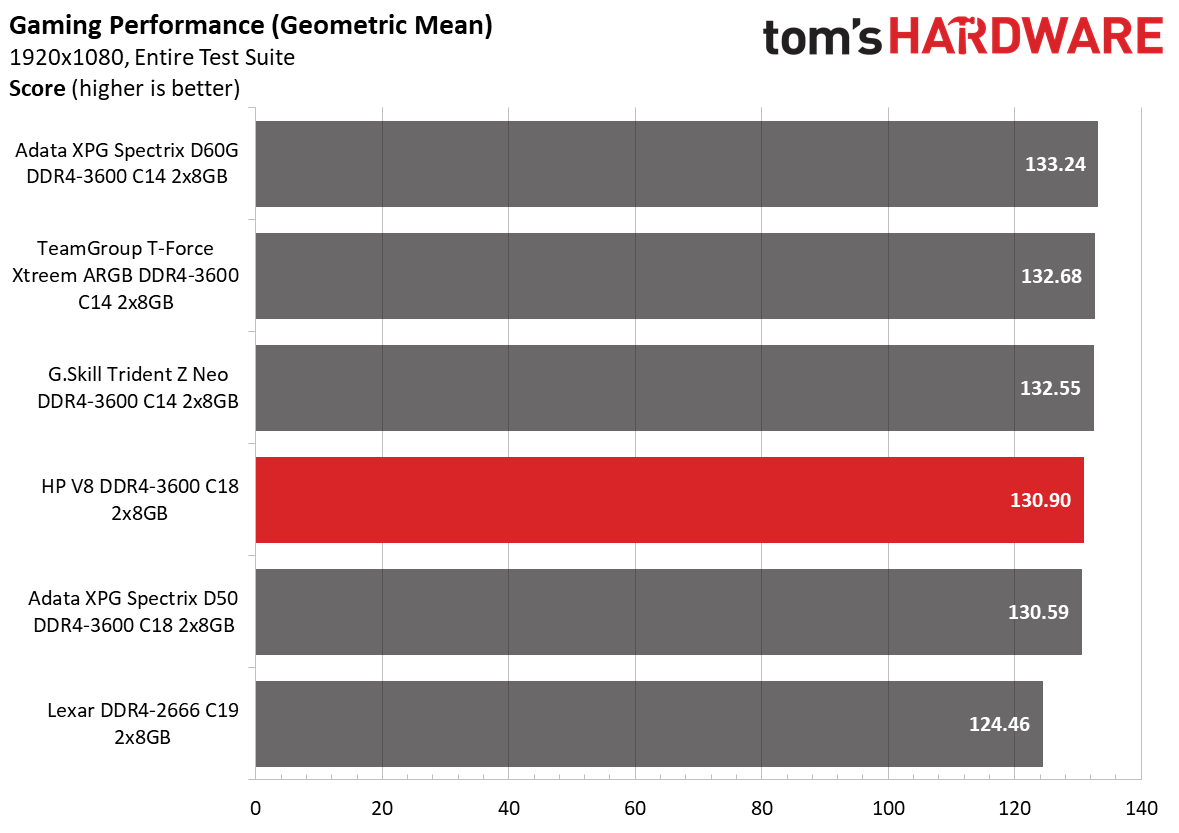
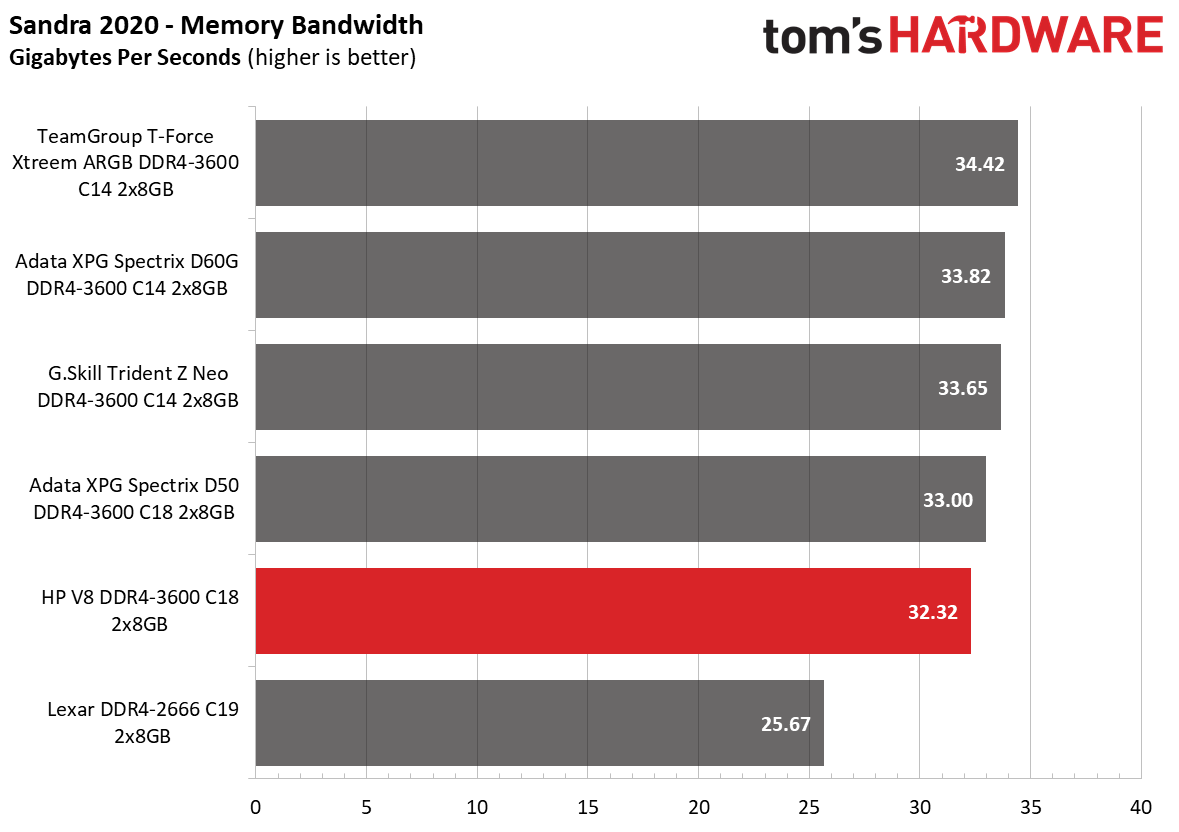
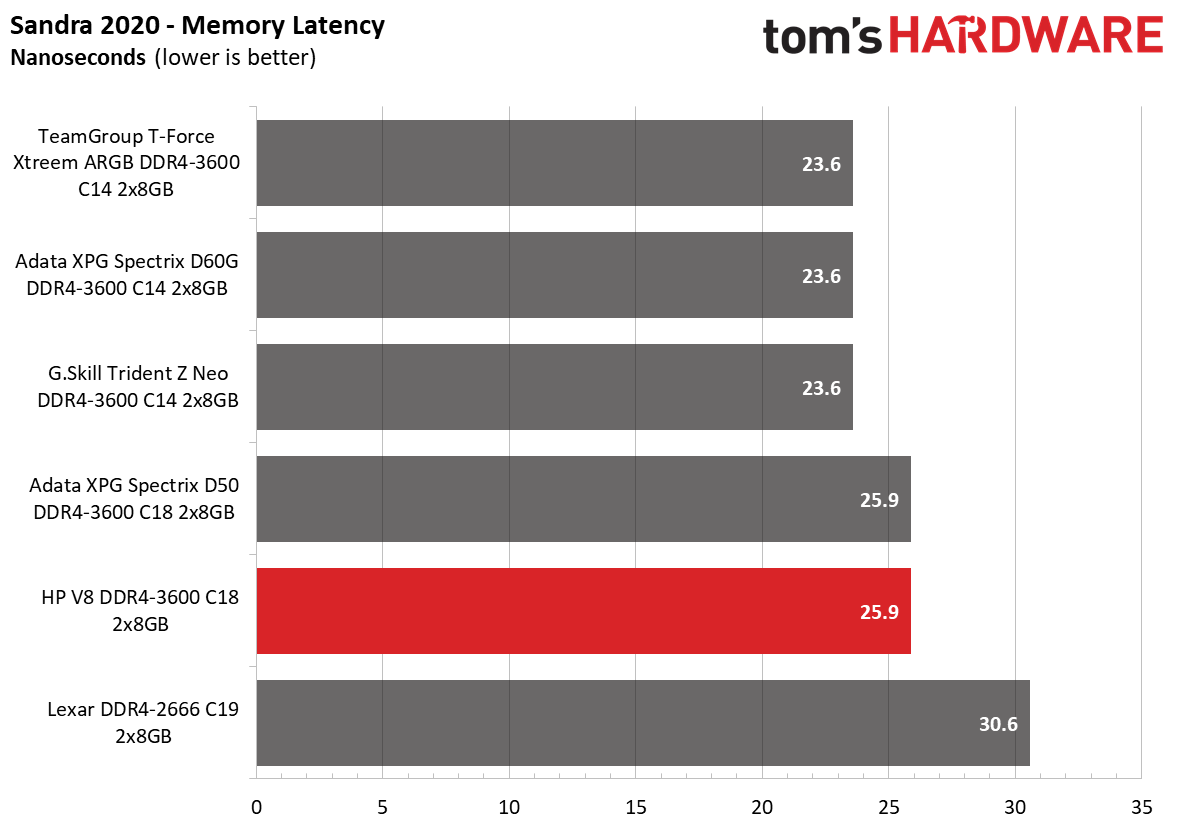
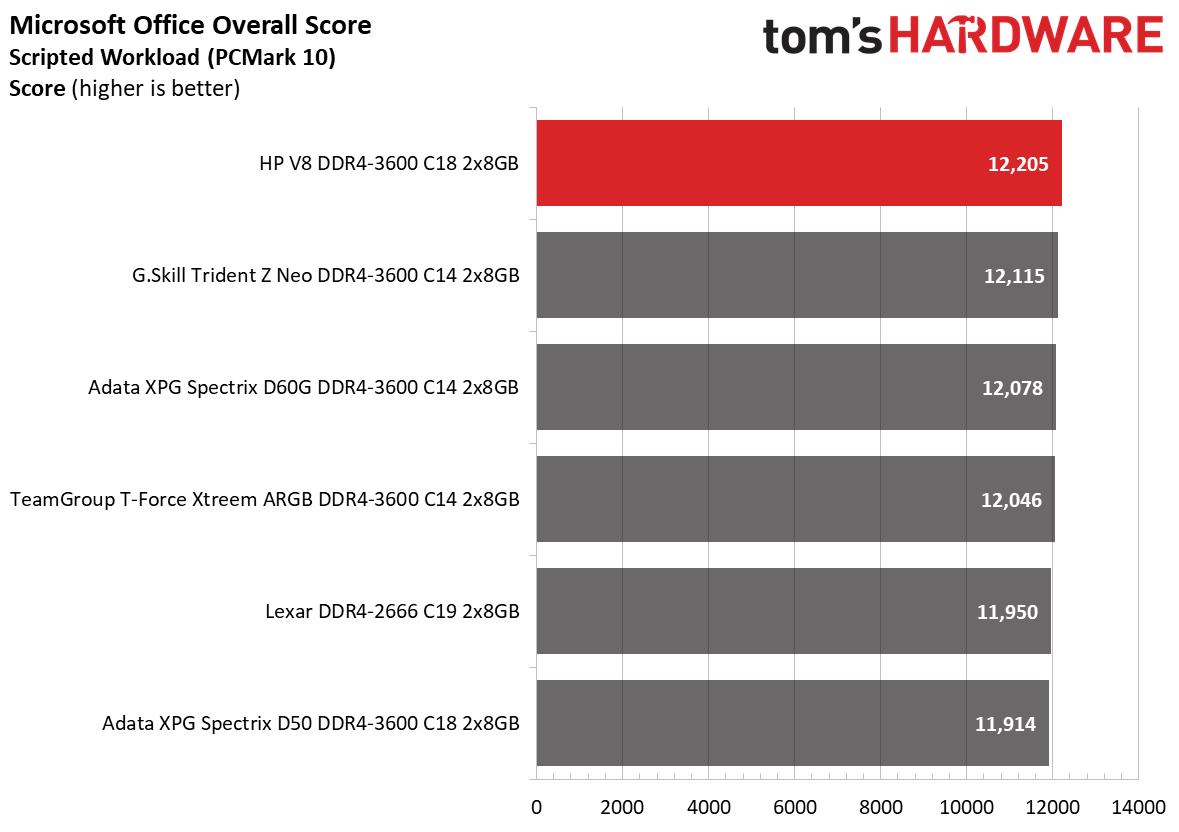
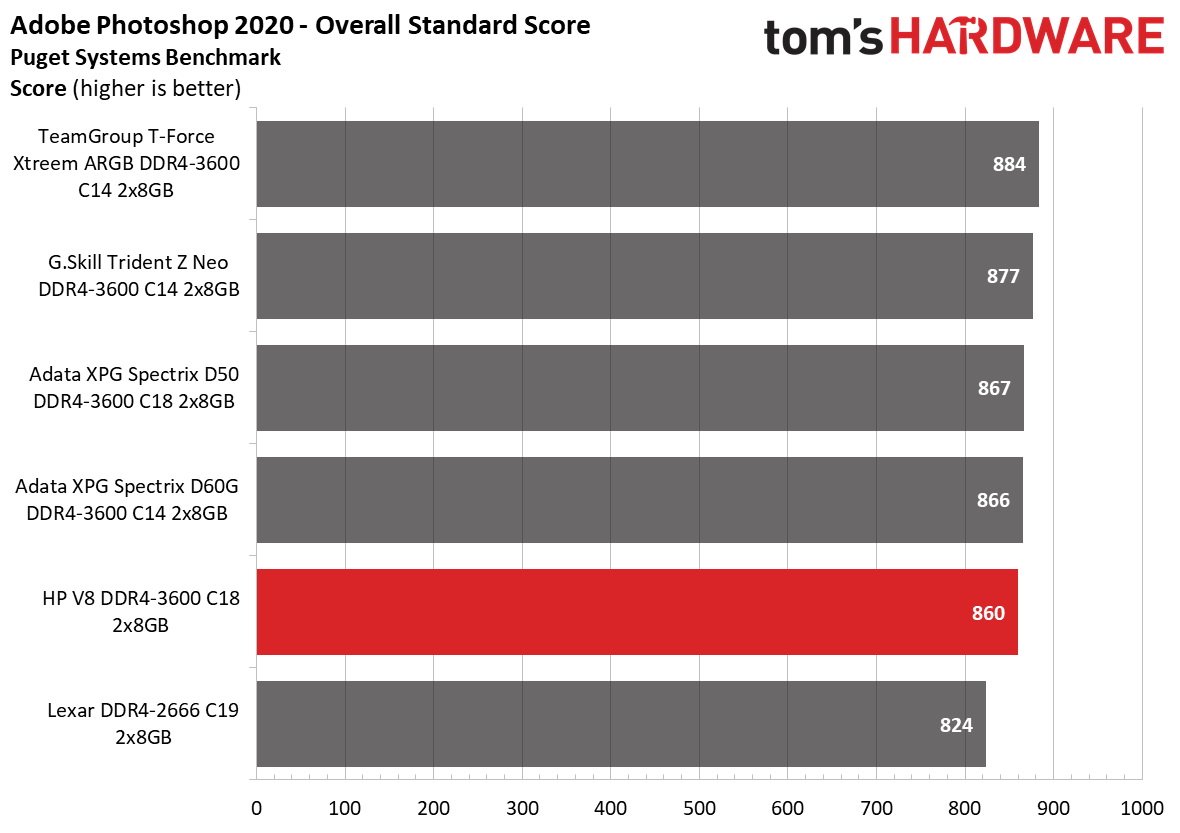
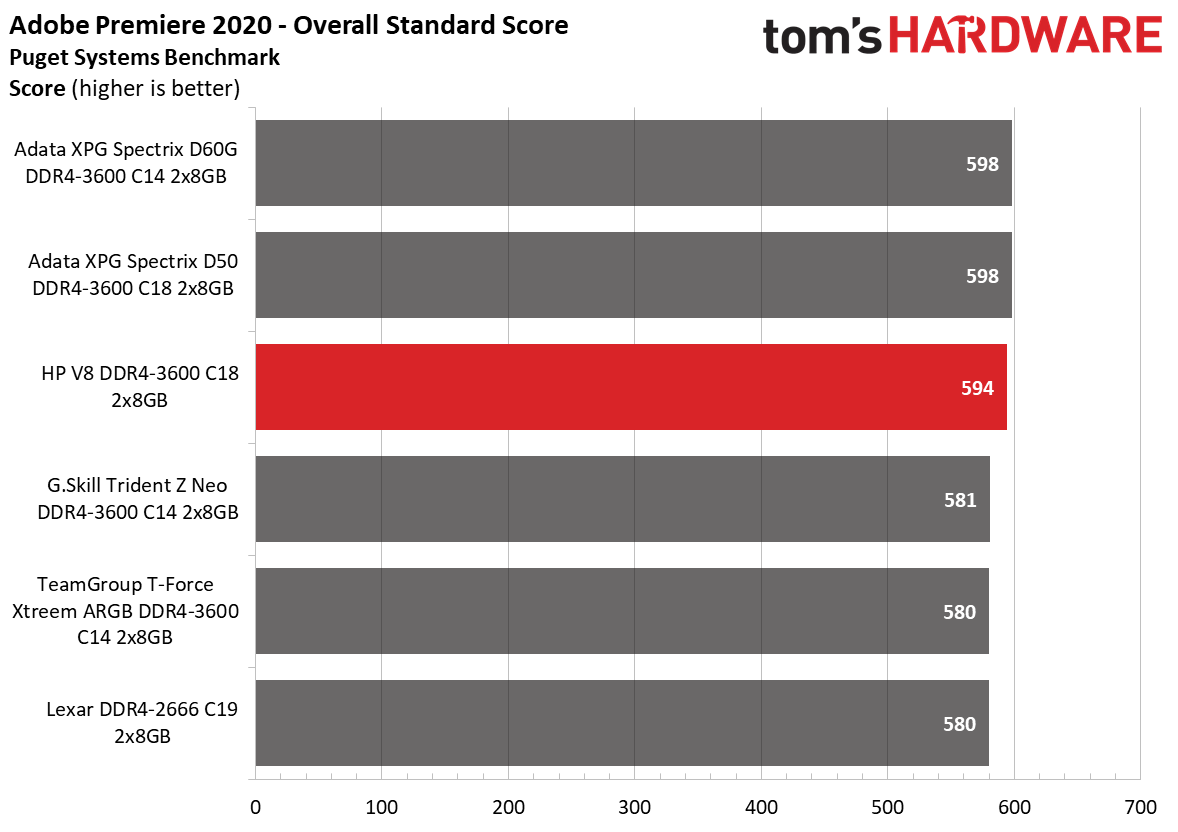
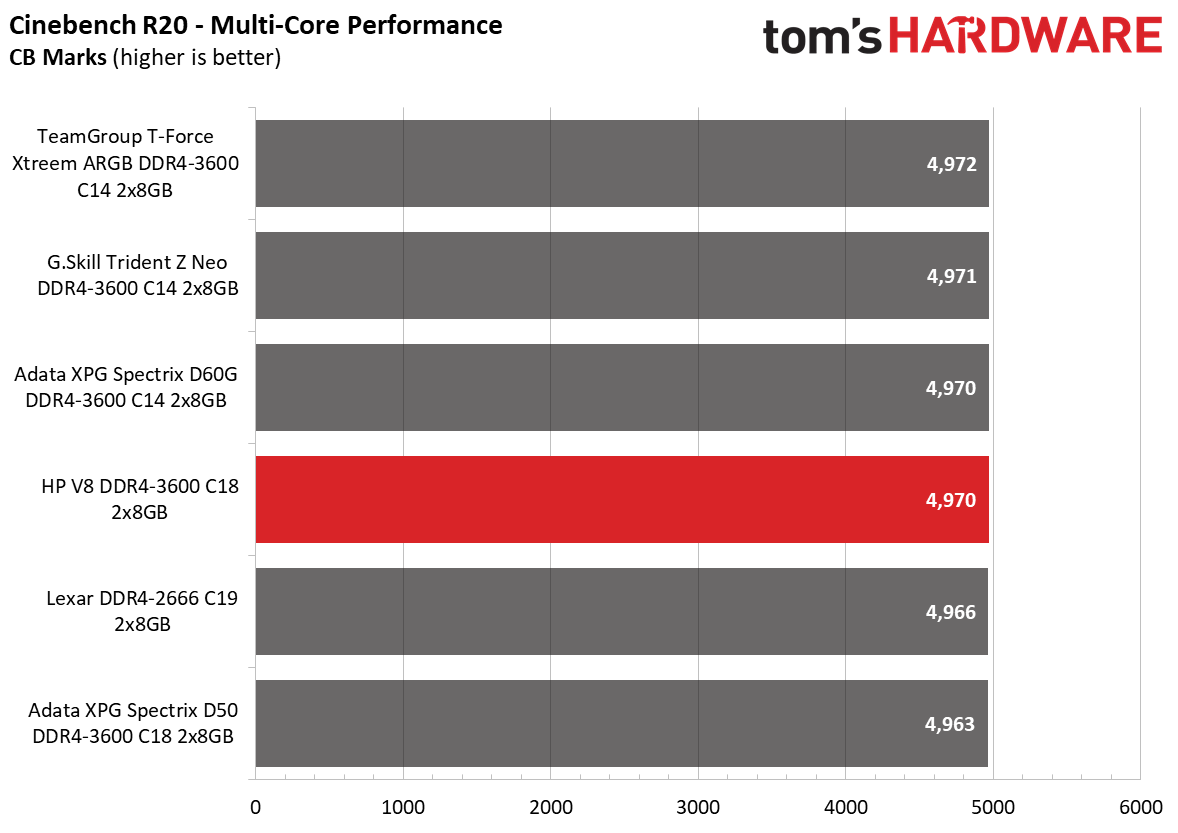
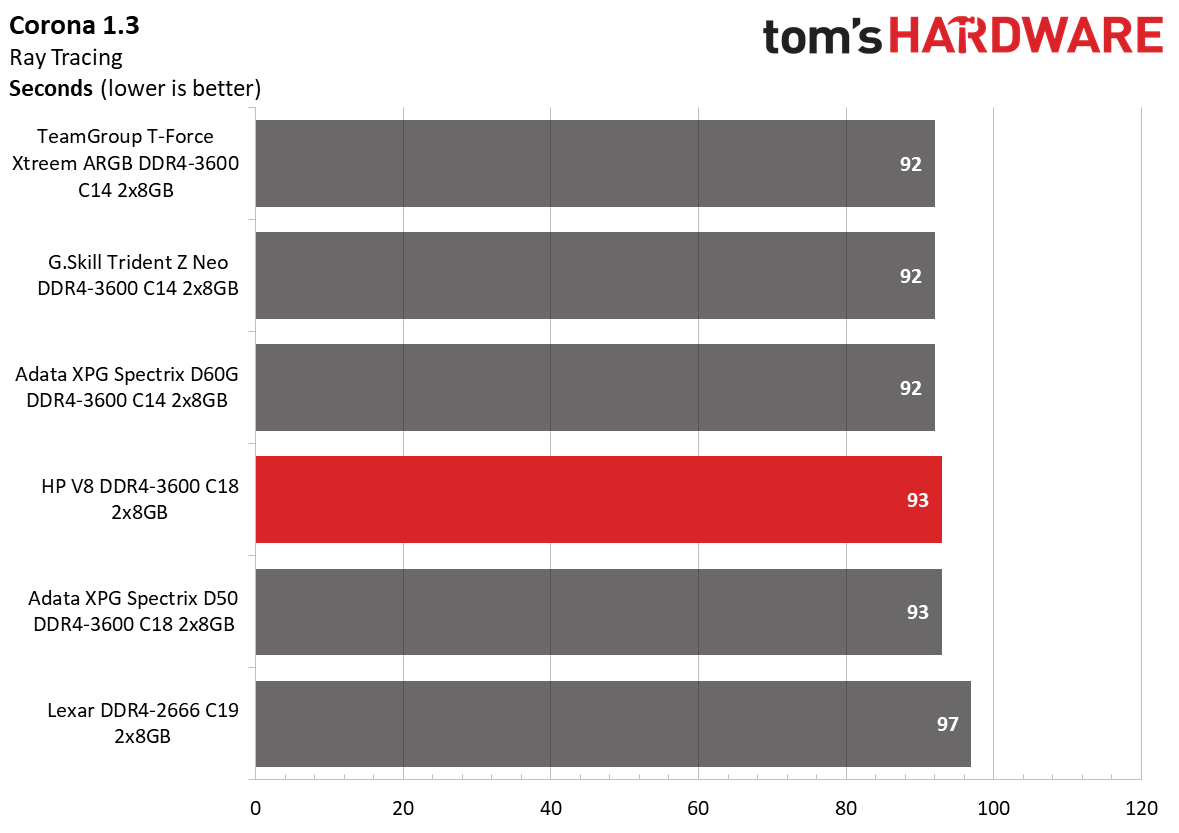
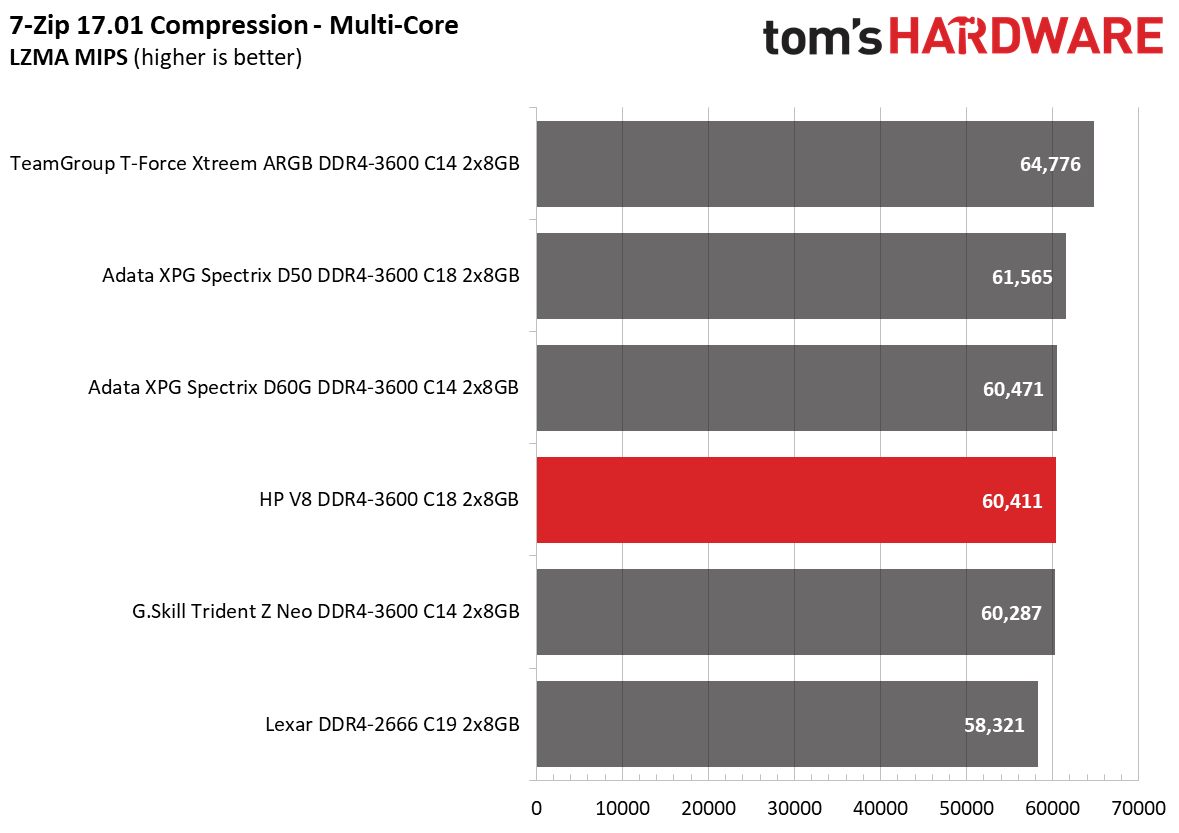
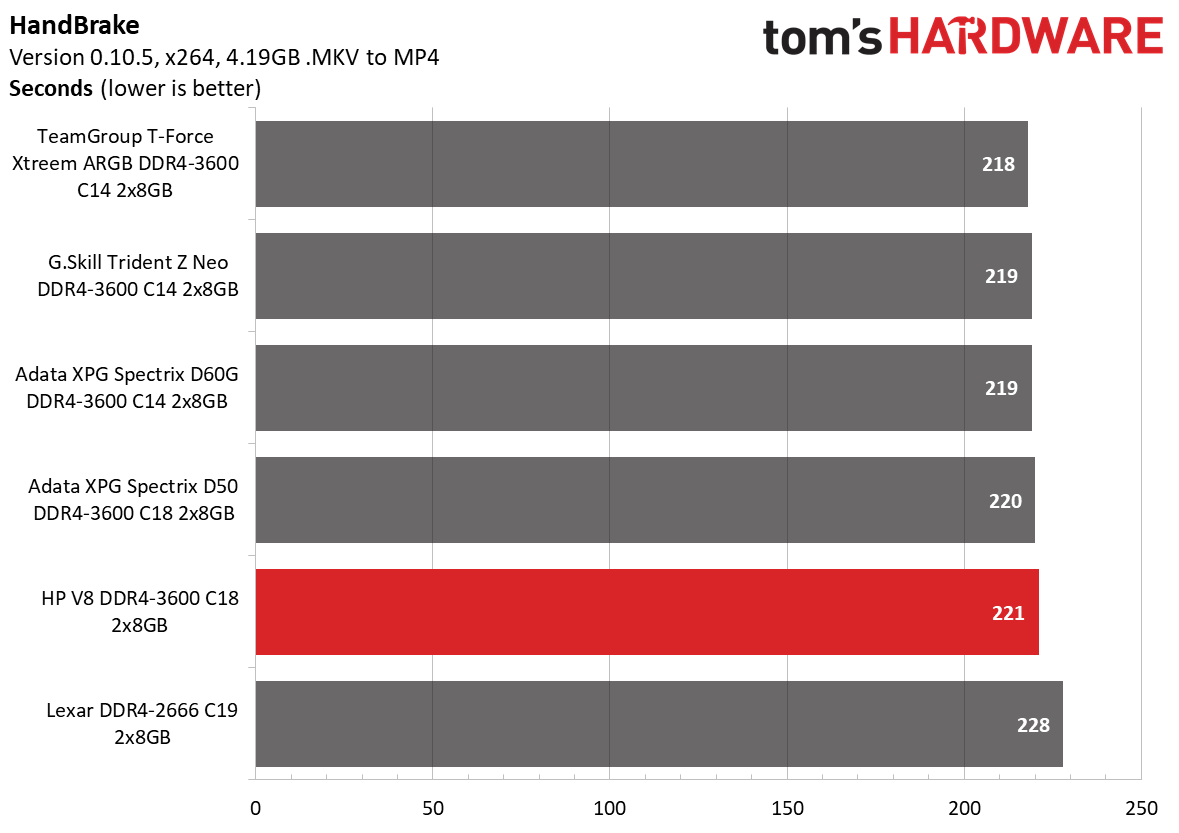
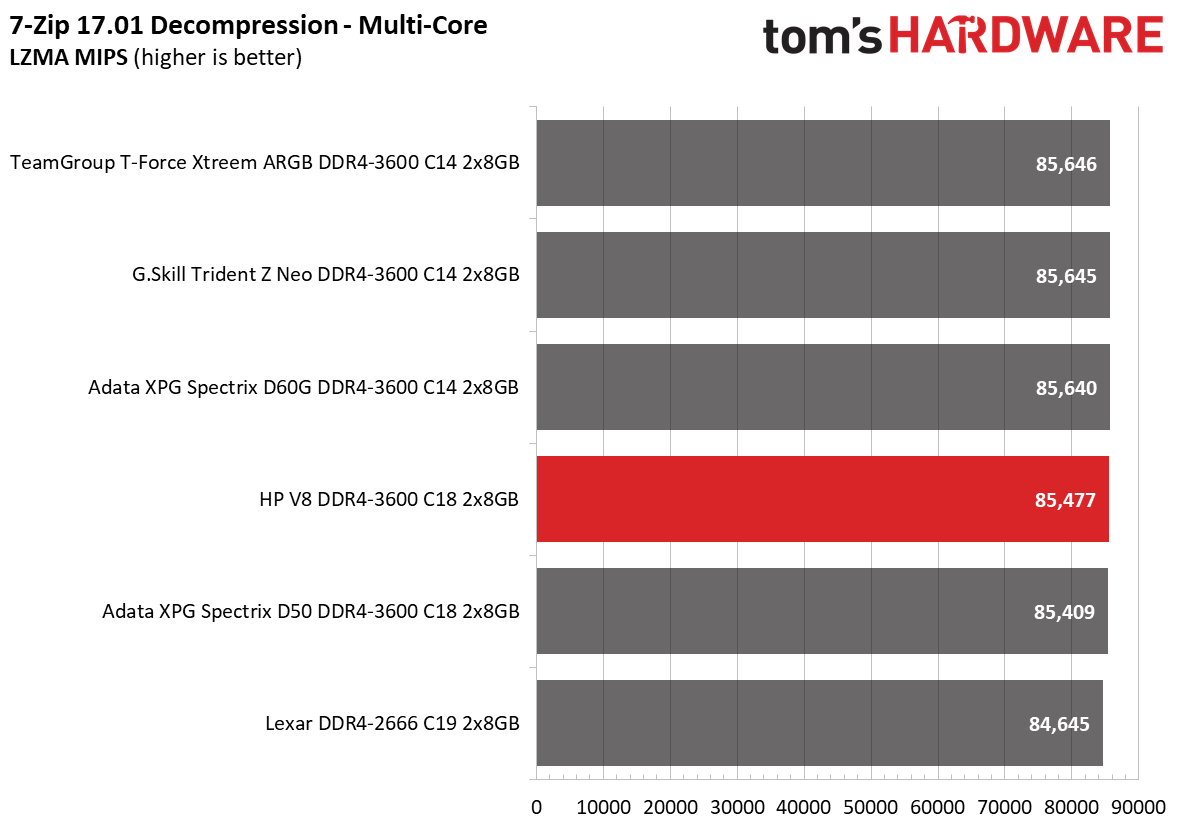
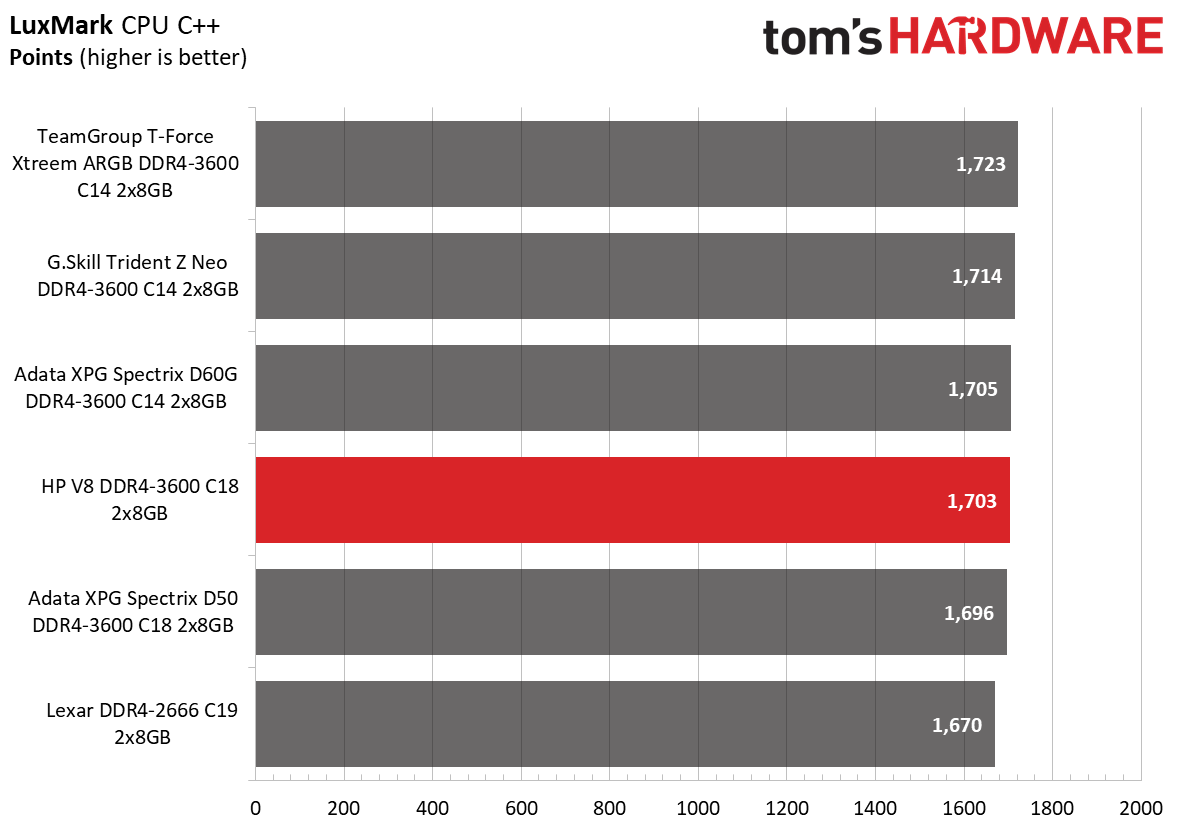
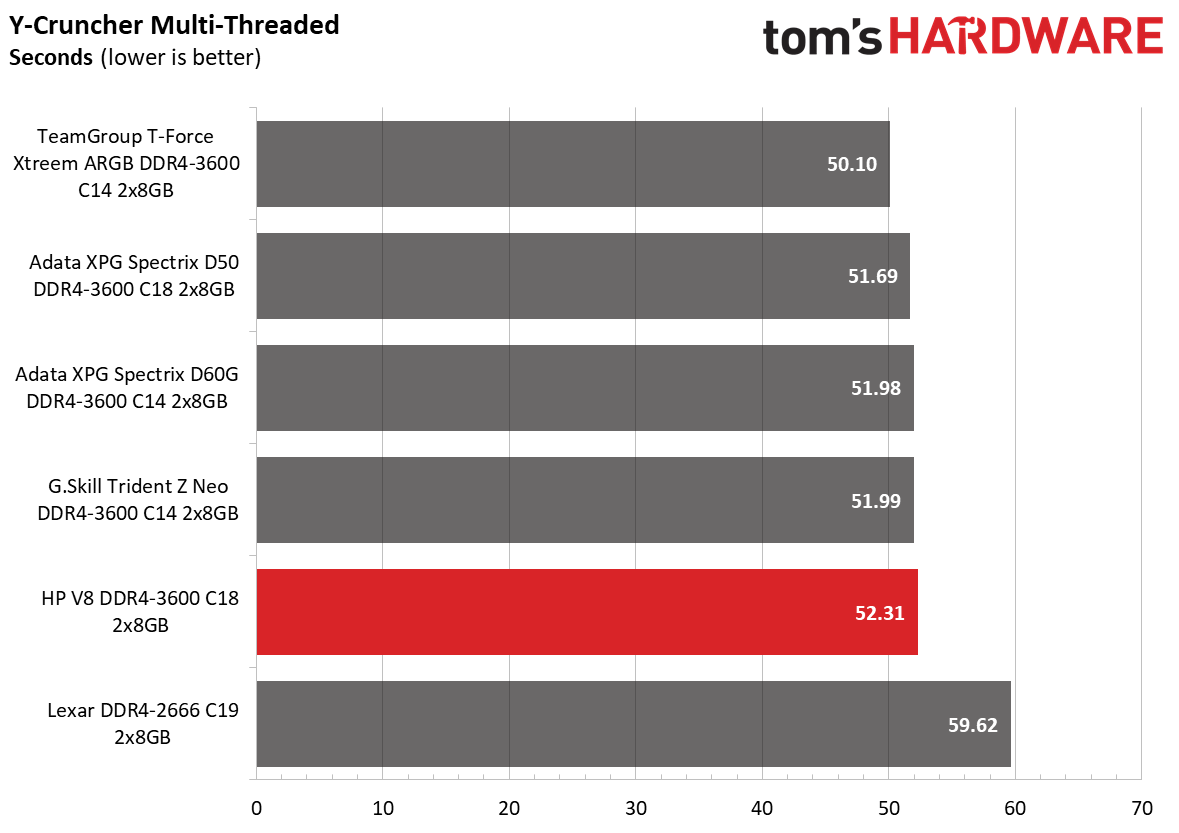
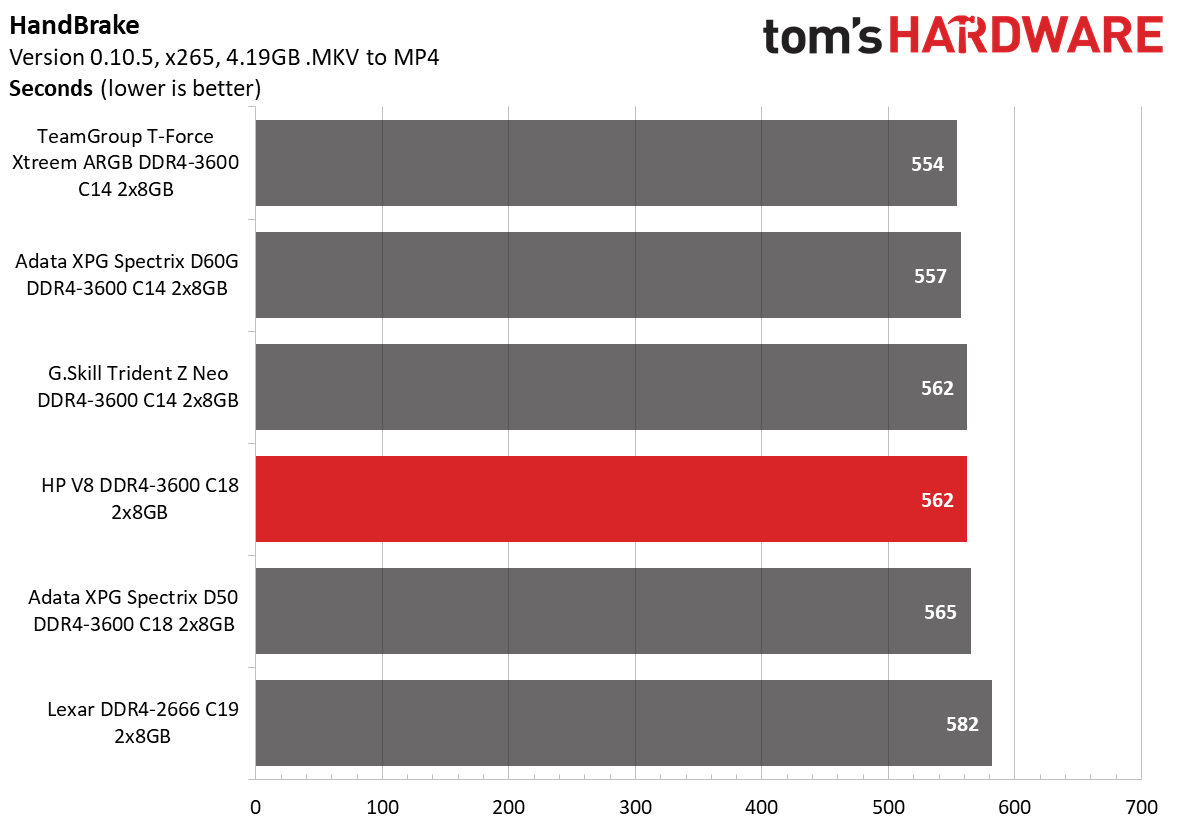
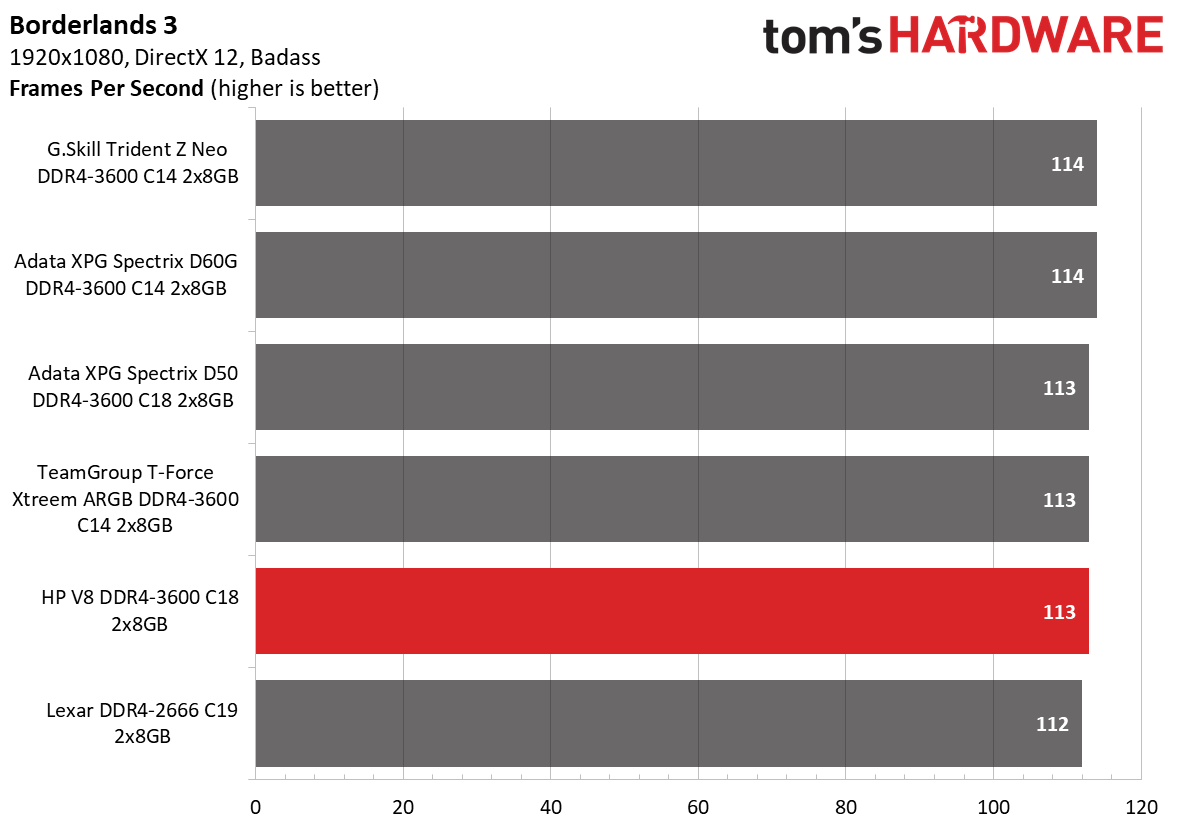
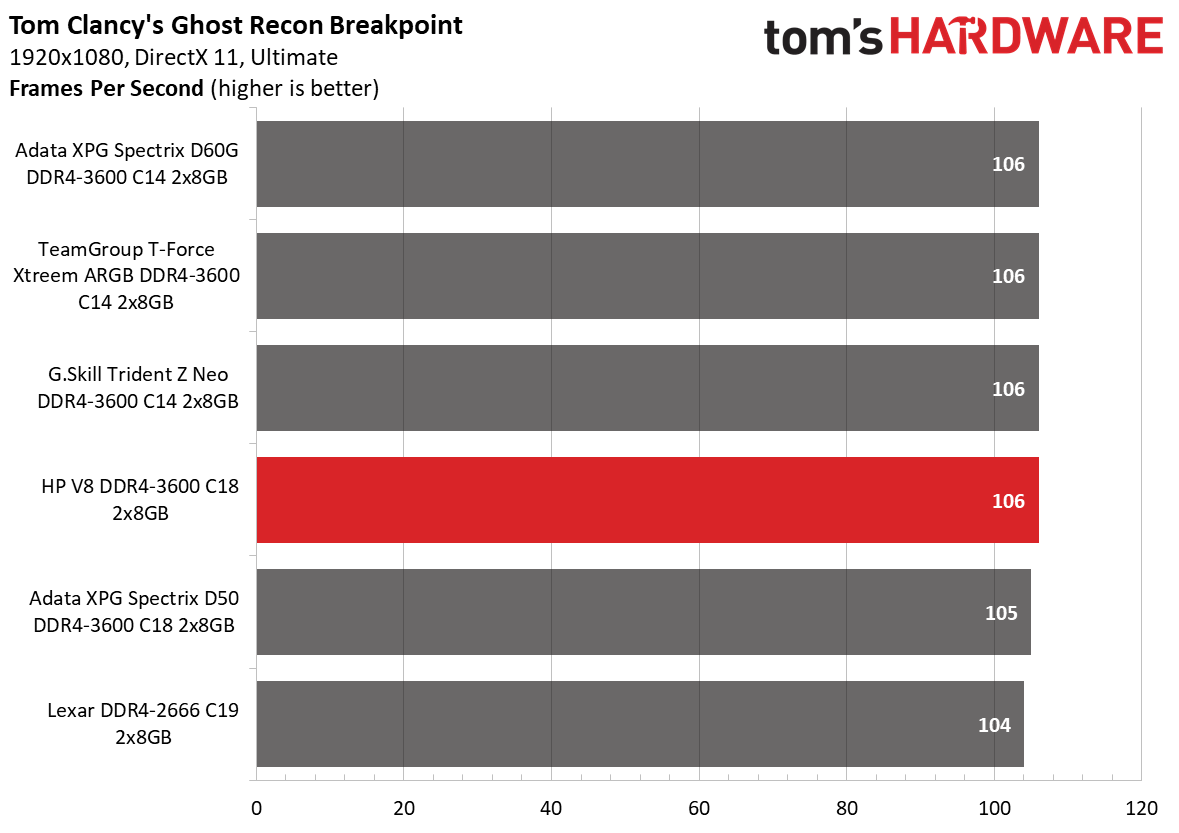
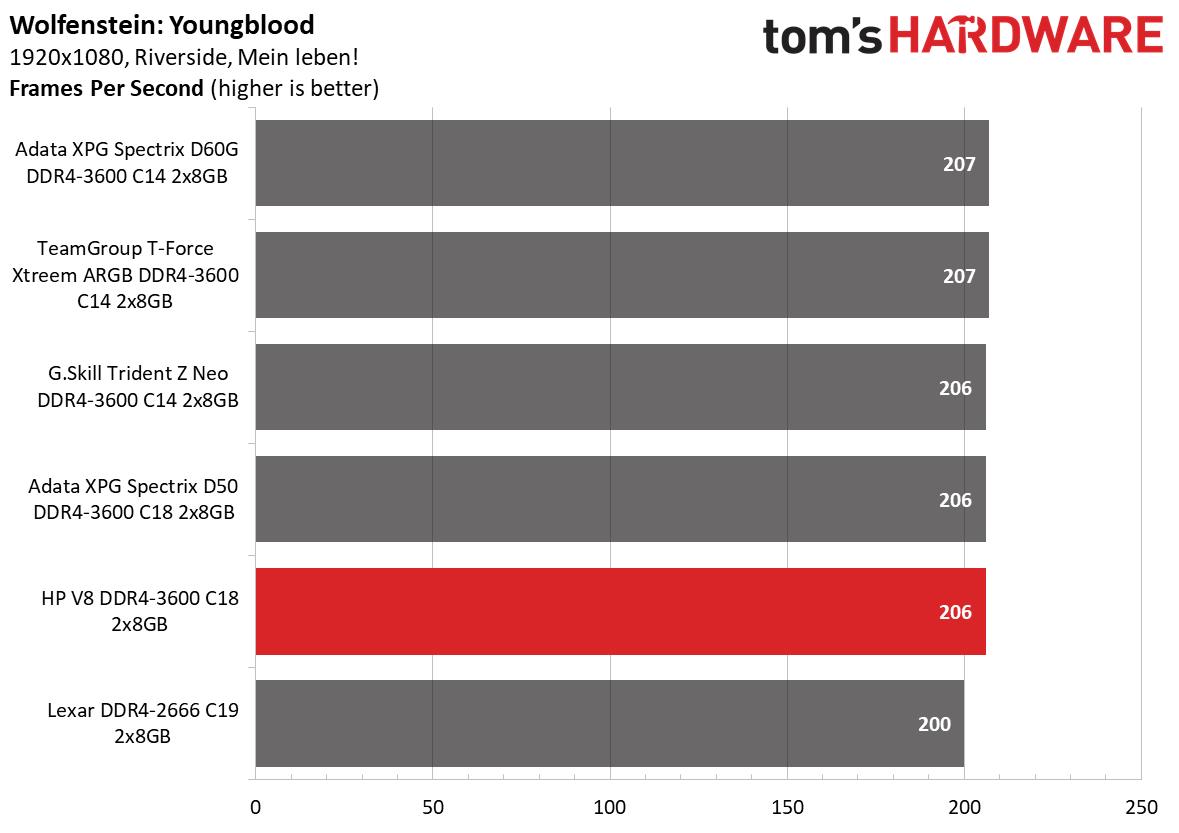
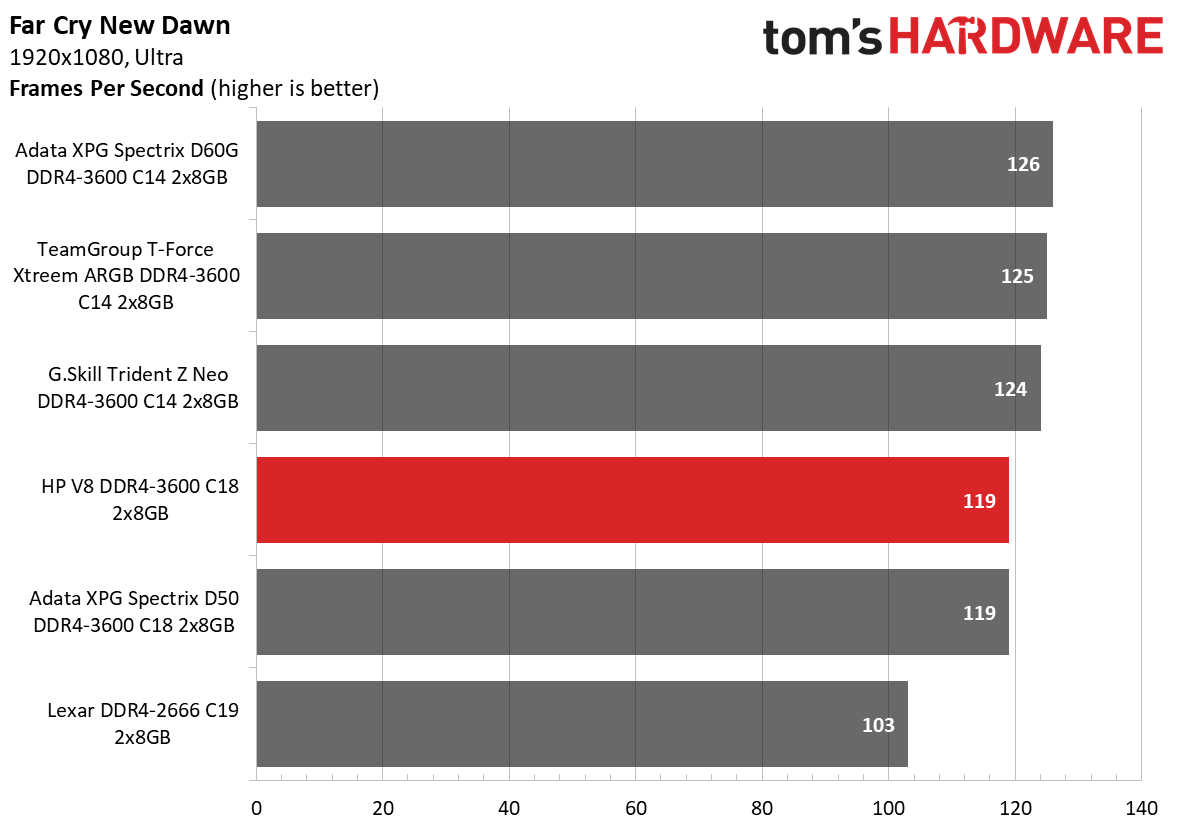
The V8 DDR4-3600 C18 came in at the penultimate position on the RAM benchmarks chart, lagging behind Adata's XPG Spectrix D50 DDR4-3600 C18 memory kit. The V8's only forte was the Microsoft Office test, where it outperformed all the remaining memory kits. The memory kit did better in the gaming test as it jumped ahead of the XPG Spectrix D50.
AMD Performance
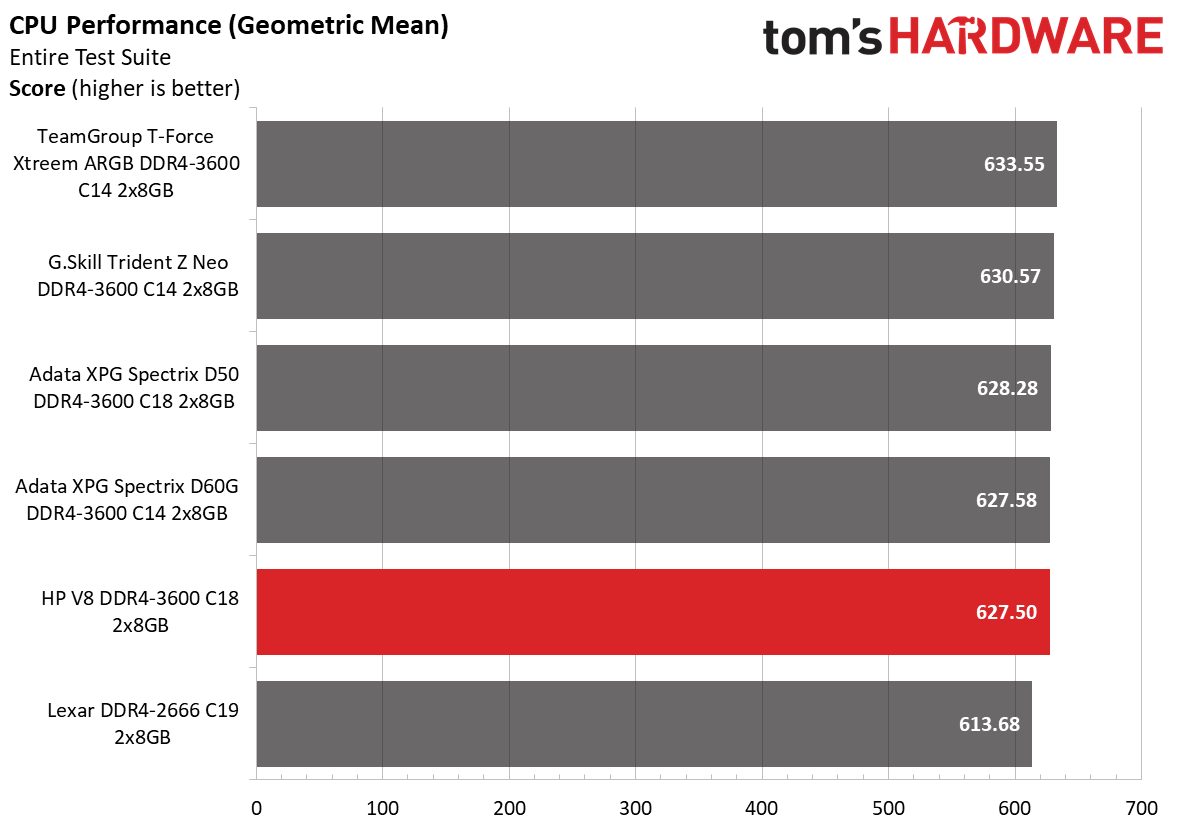
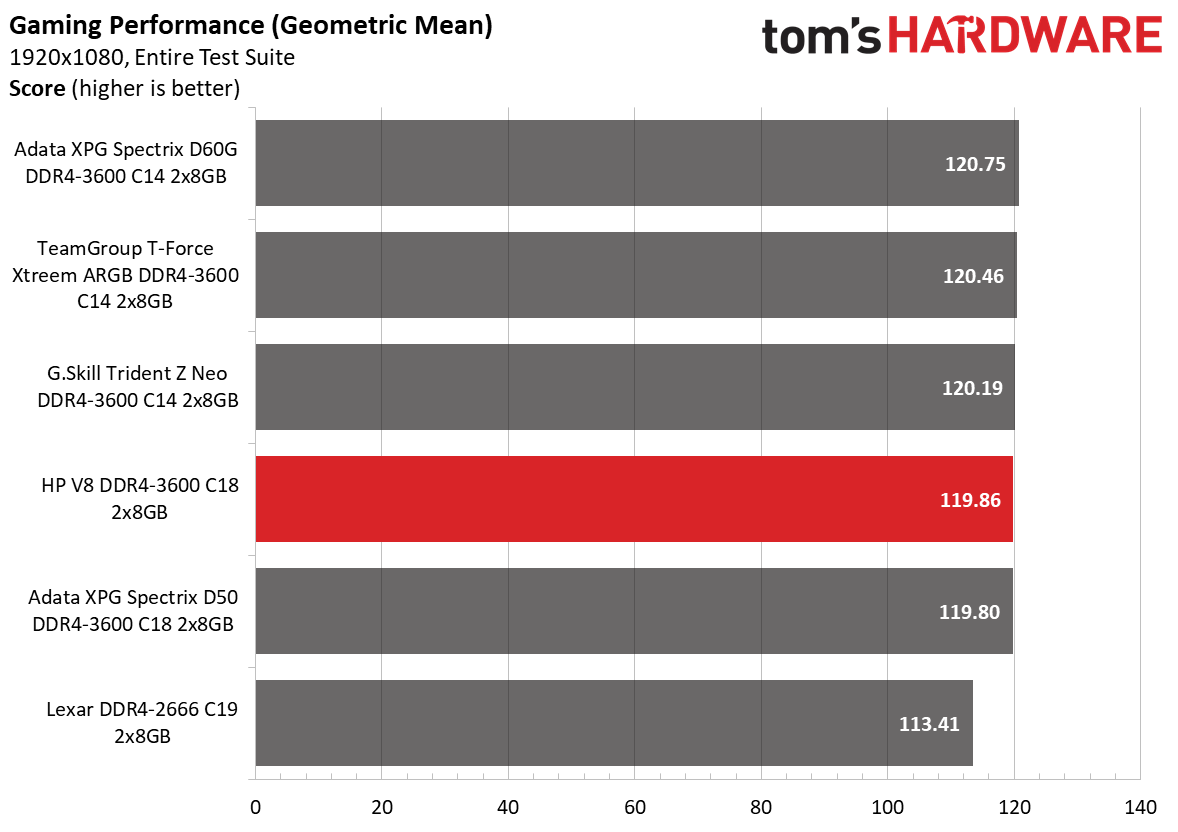
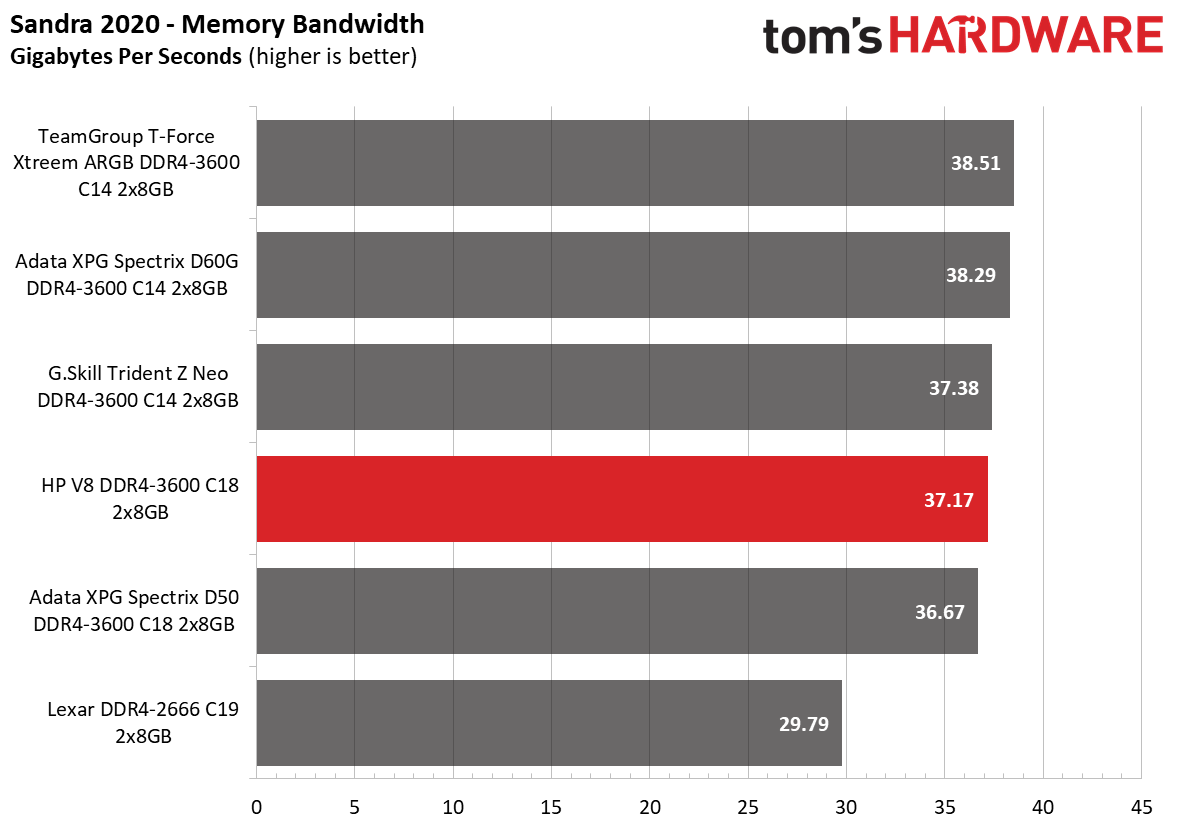
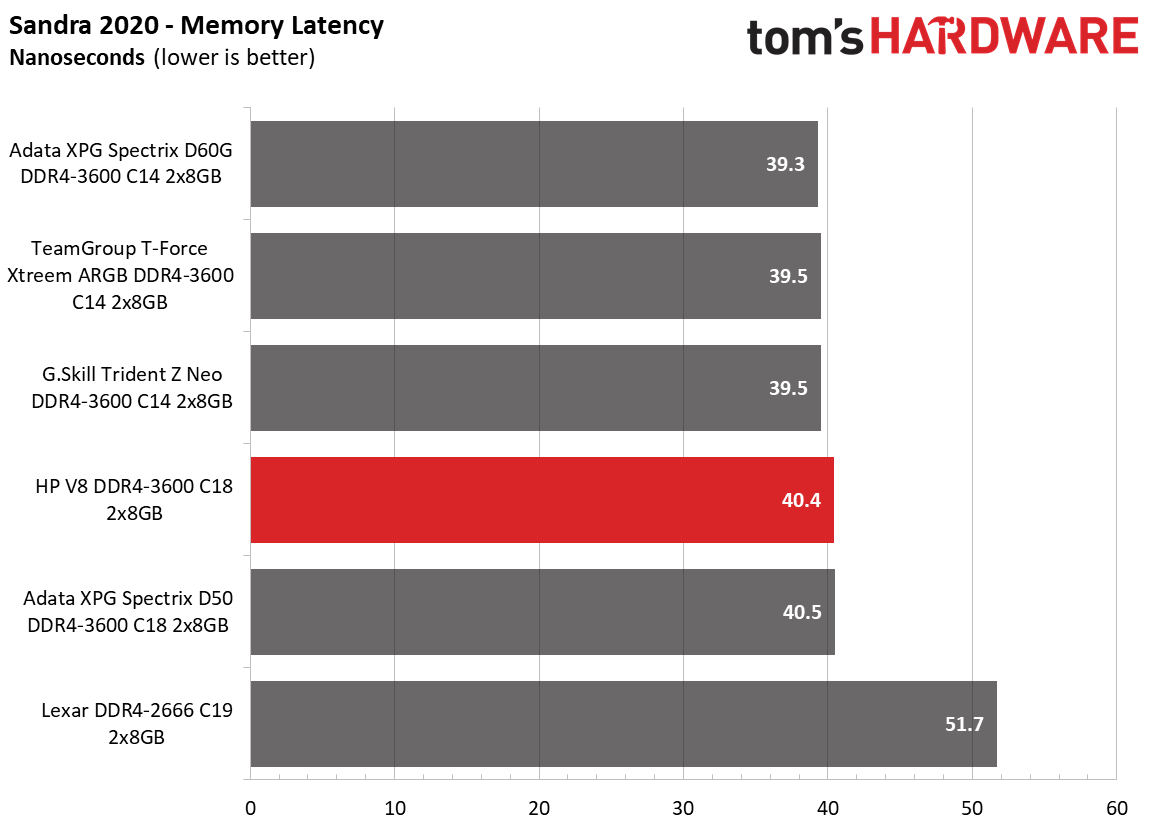
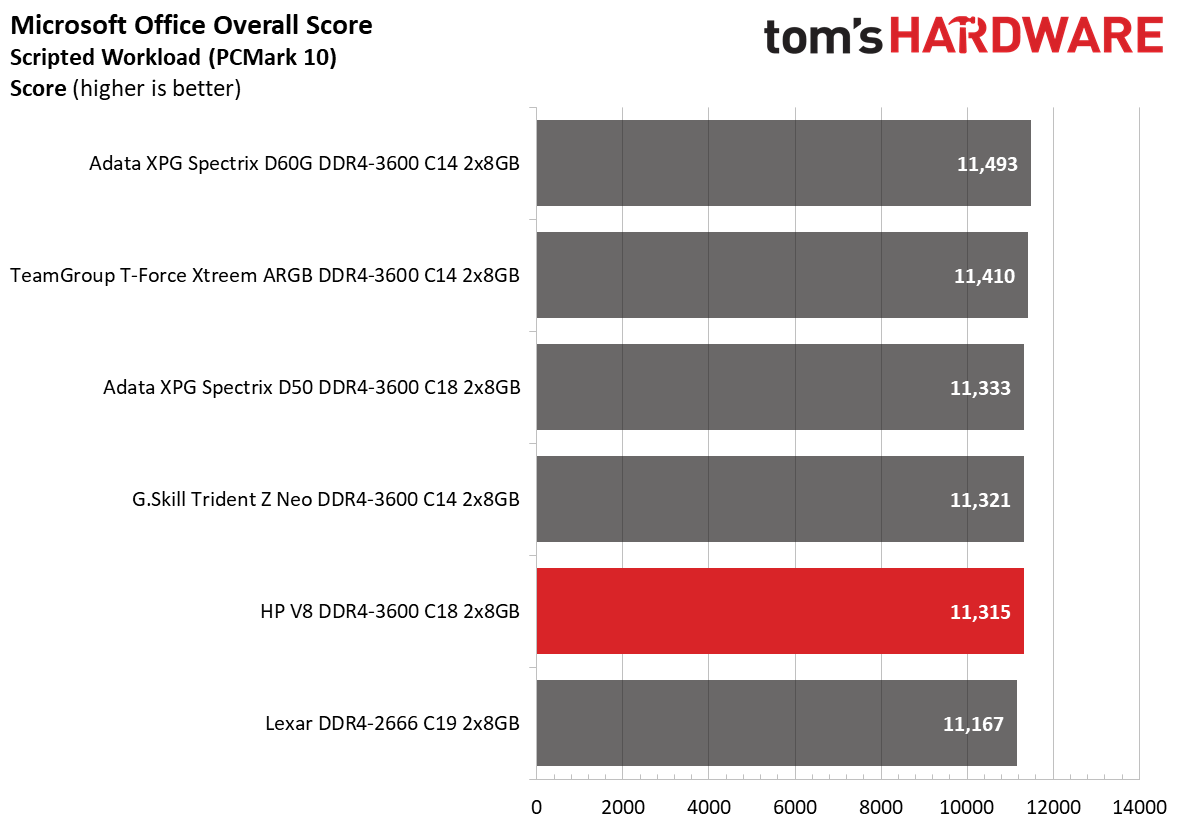
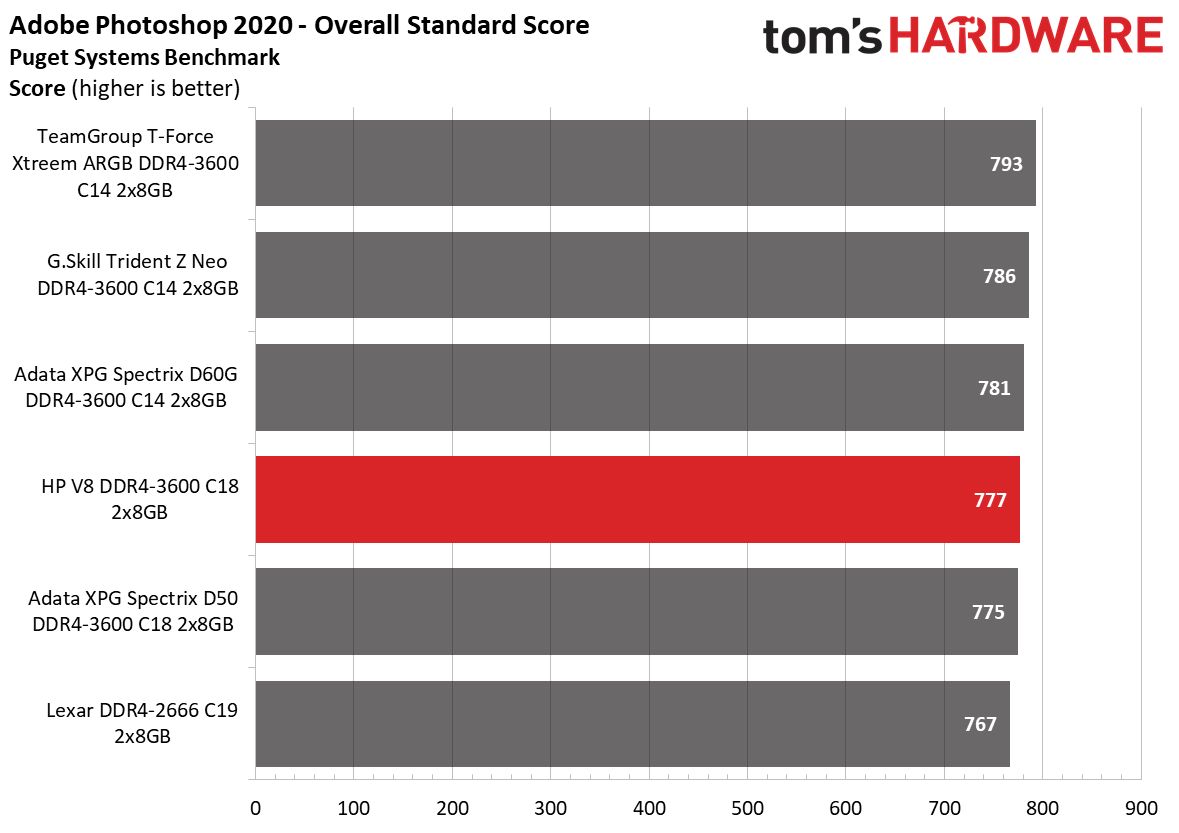
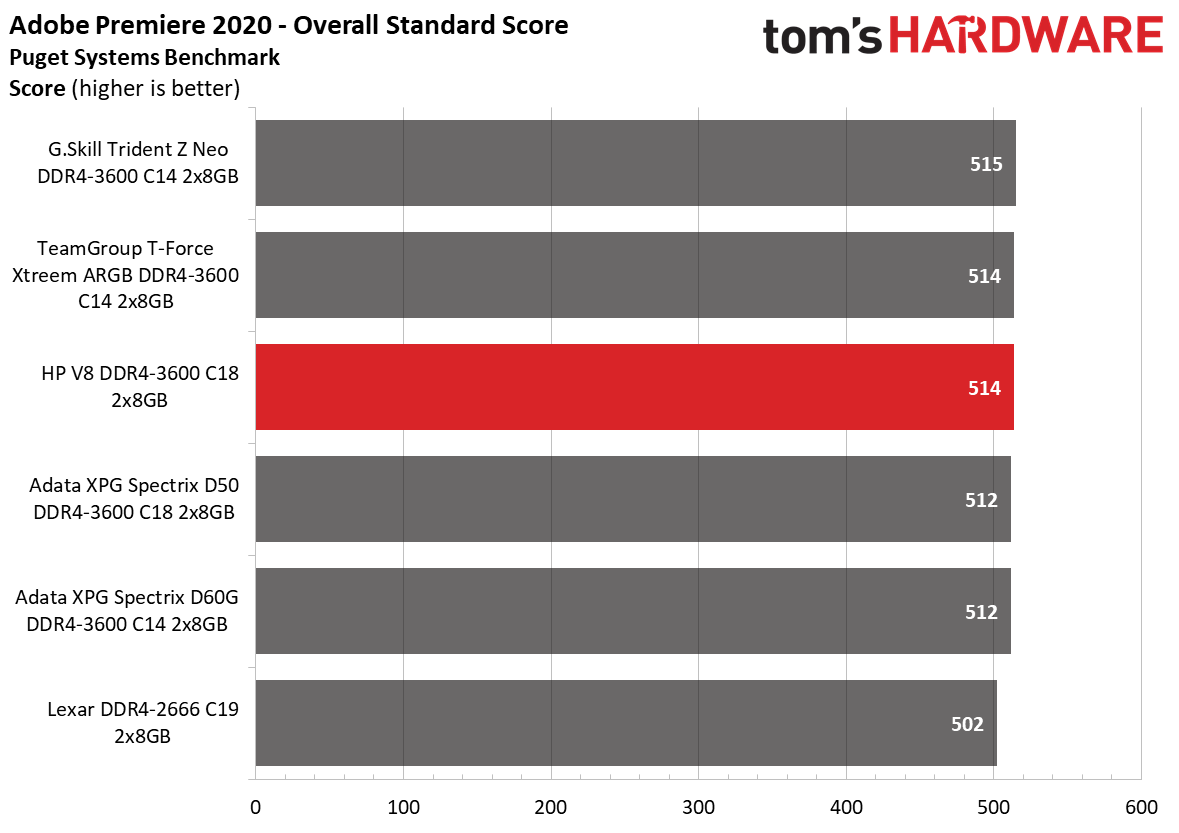
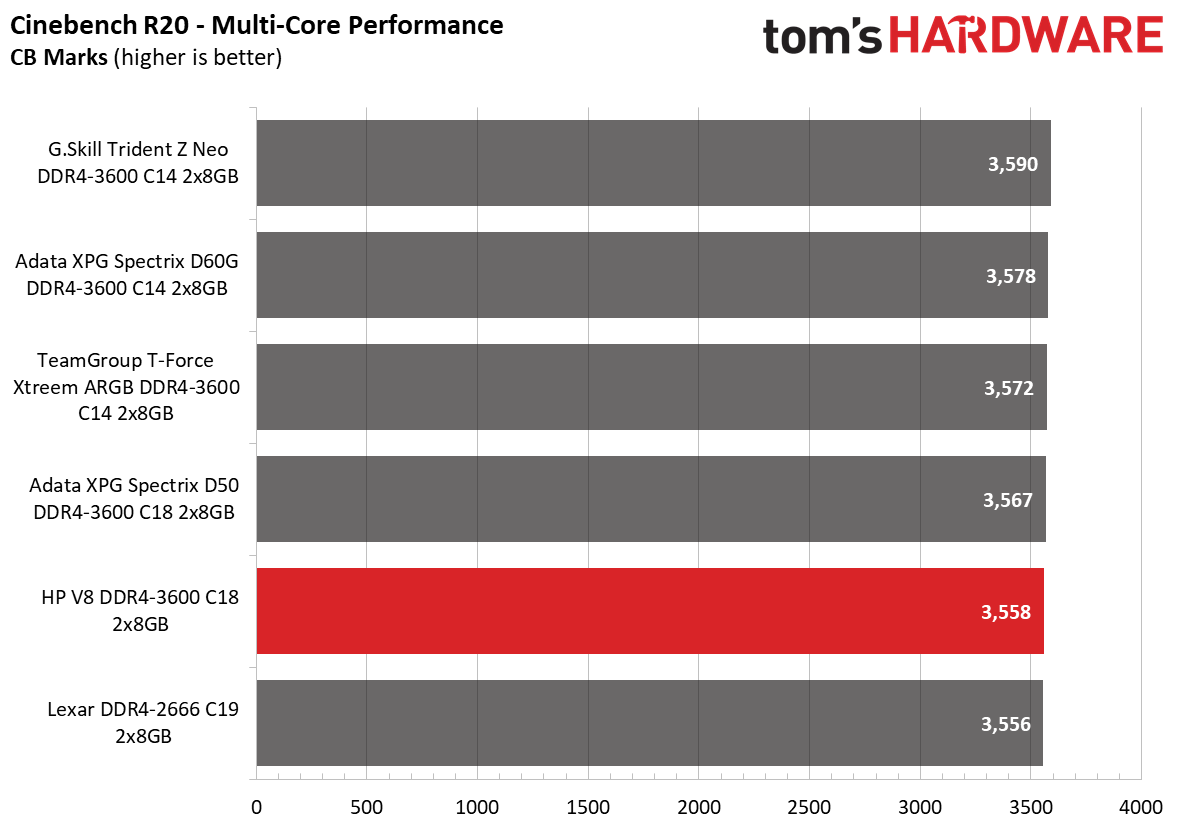
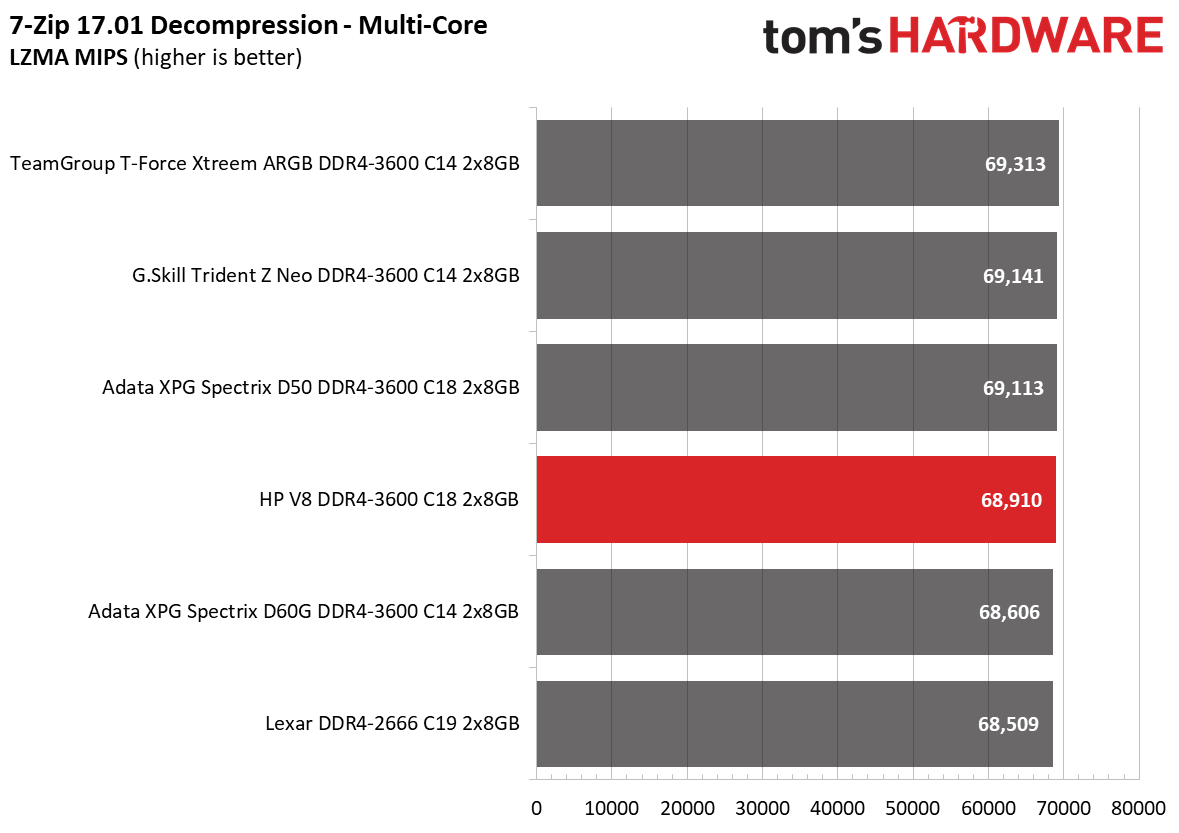
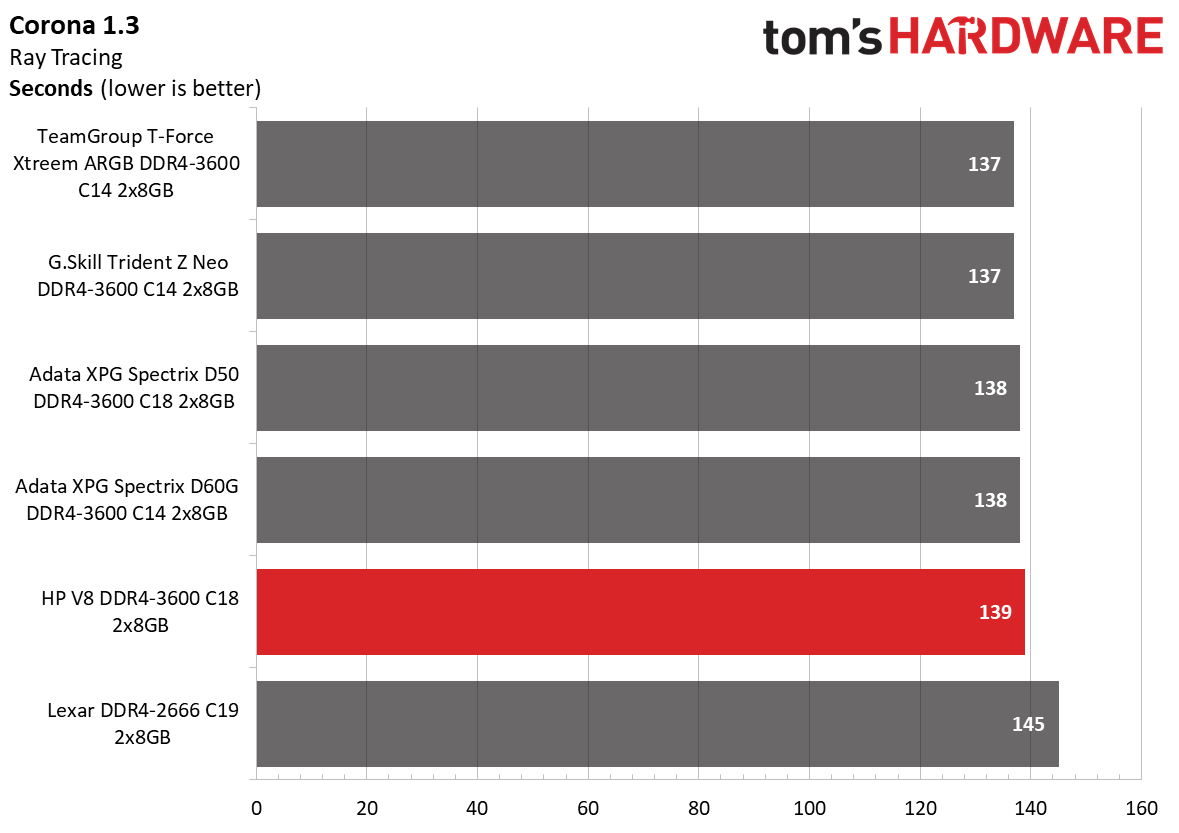
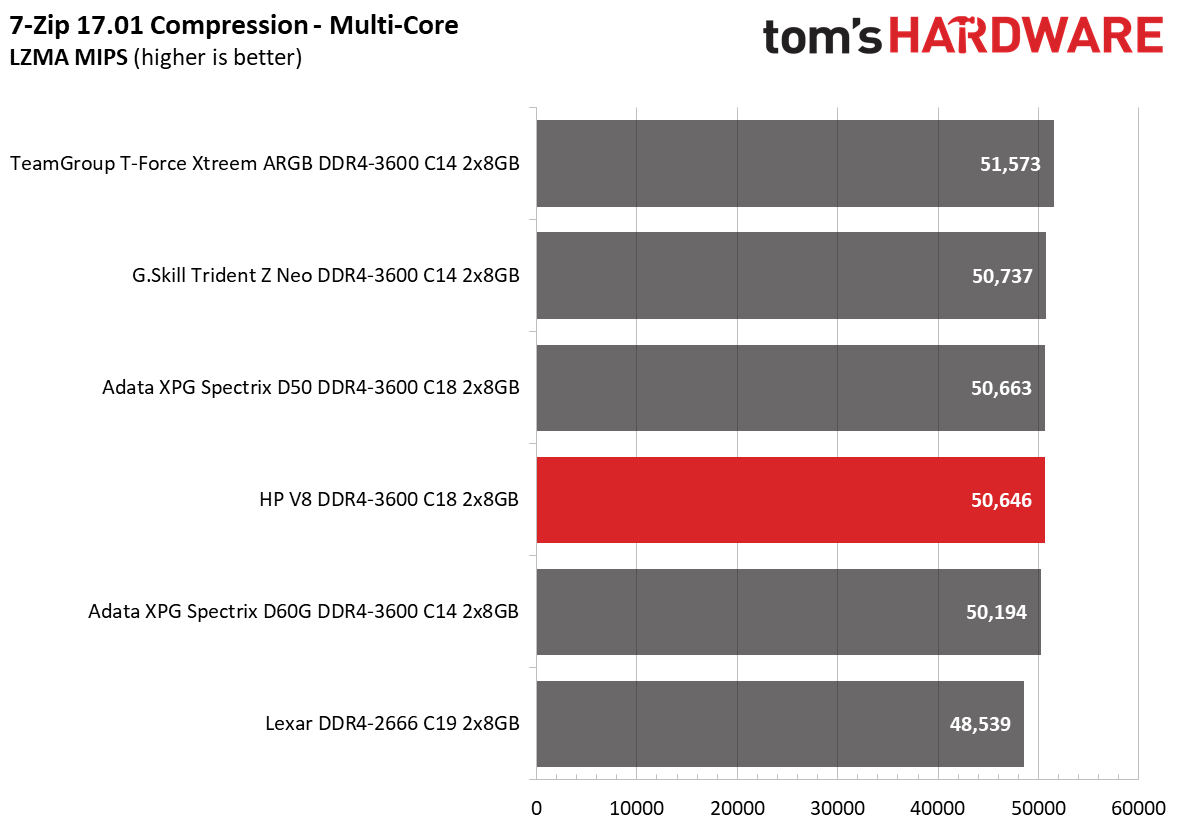
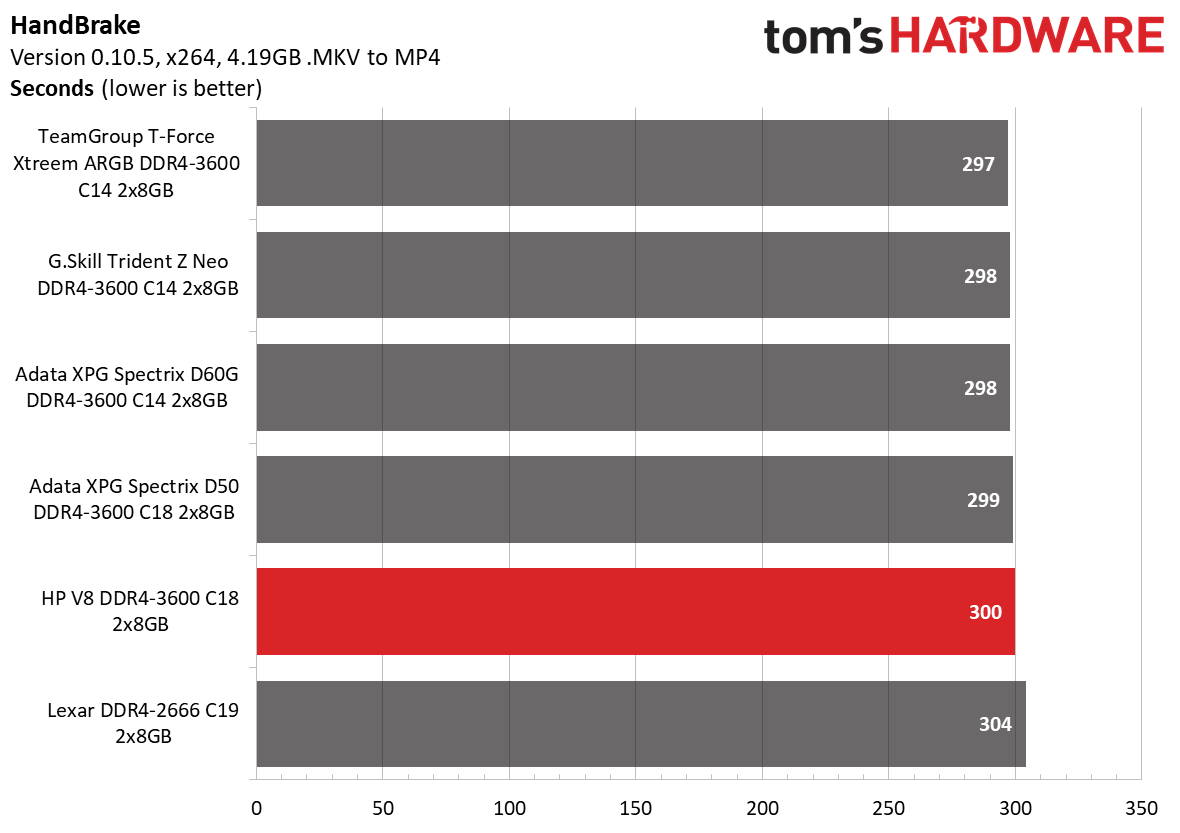
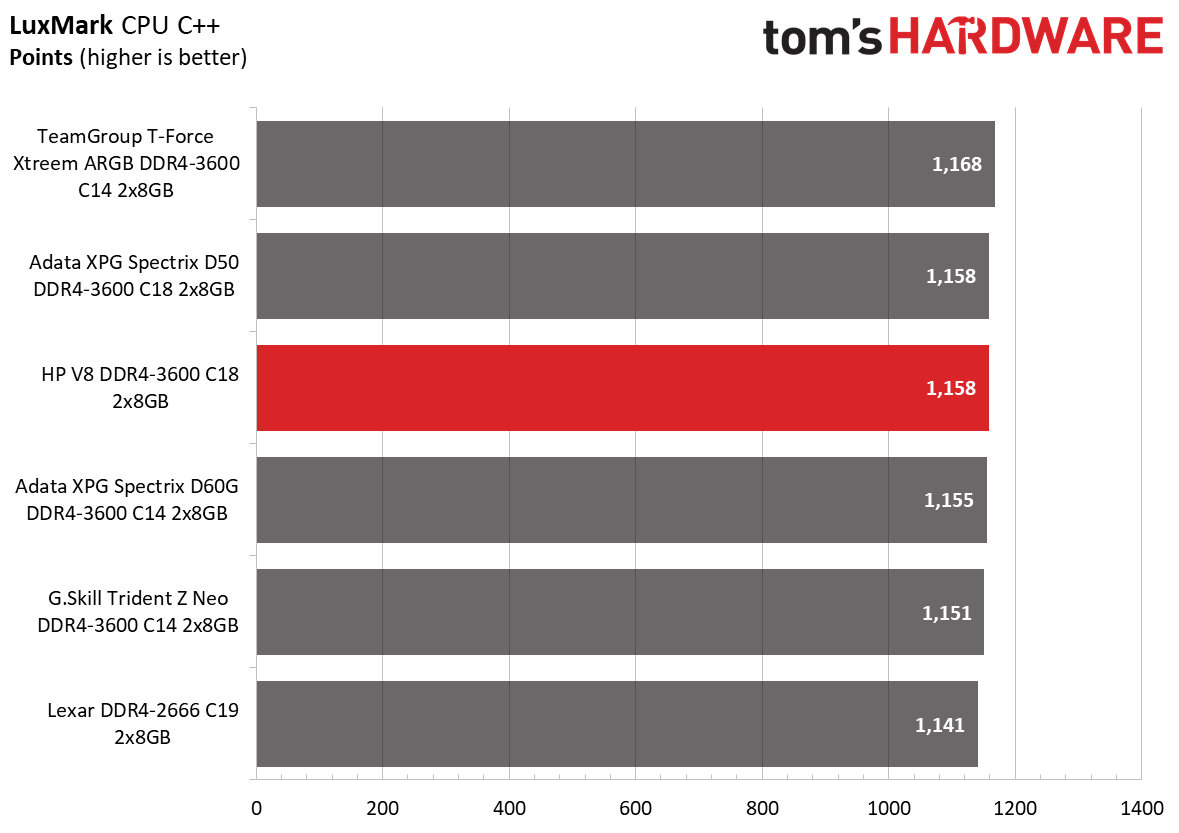
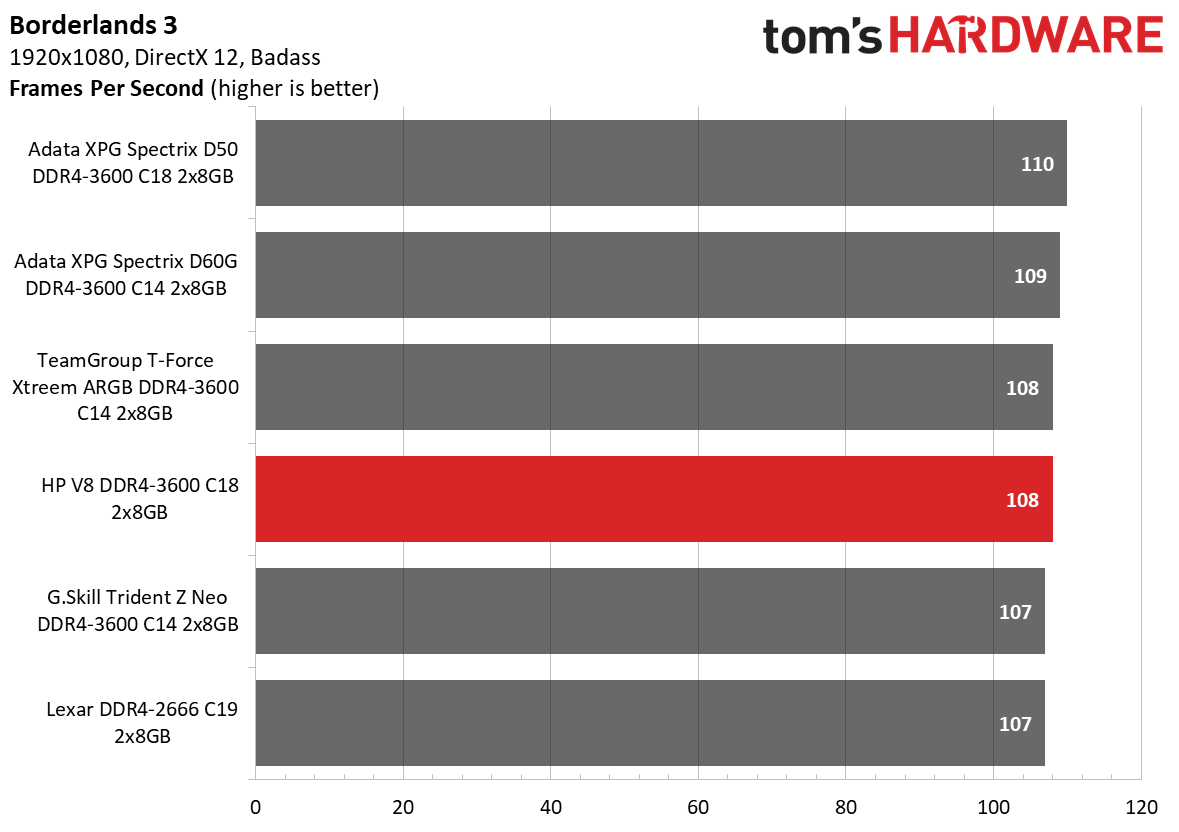
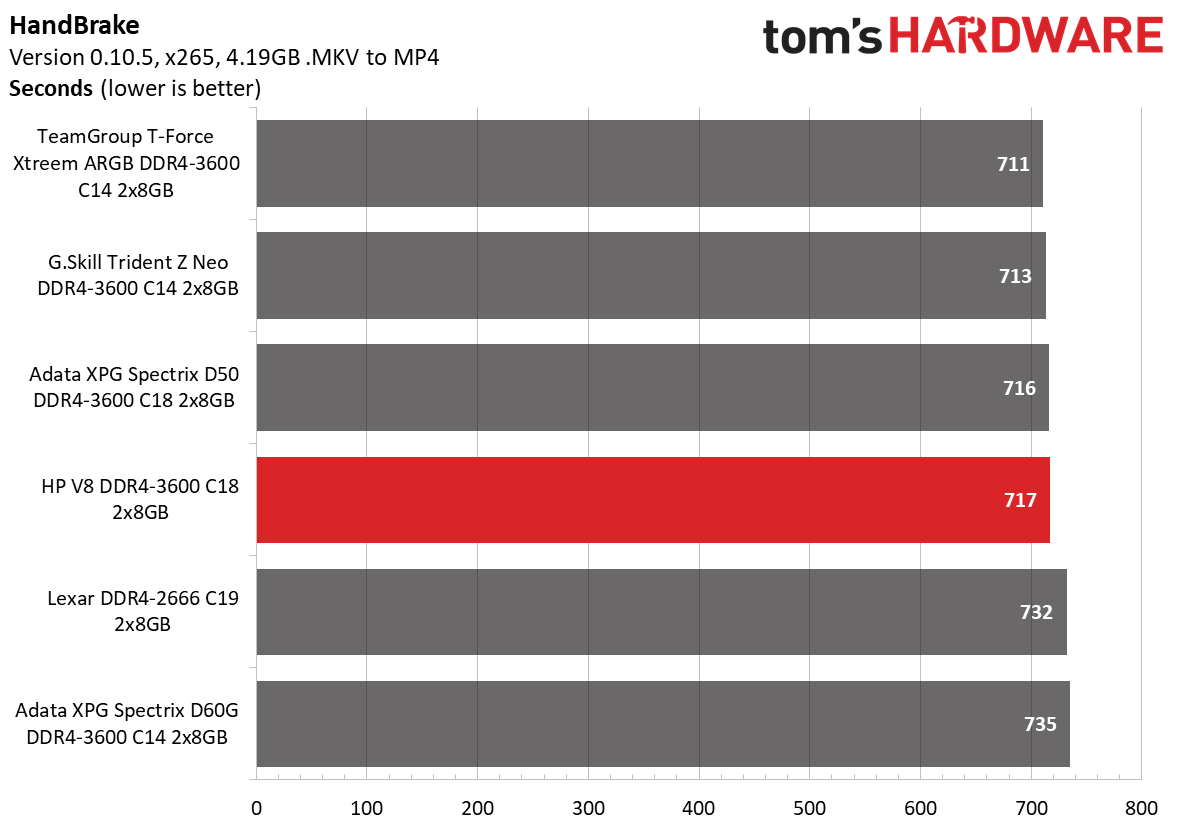
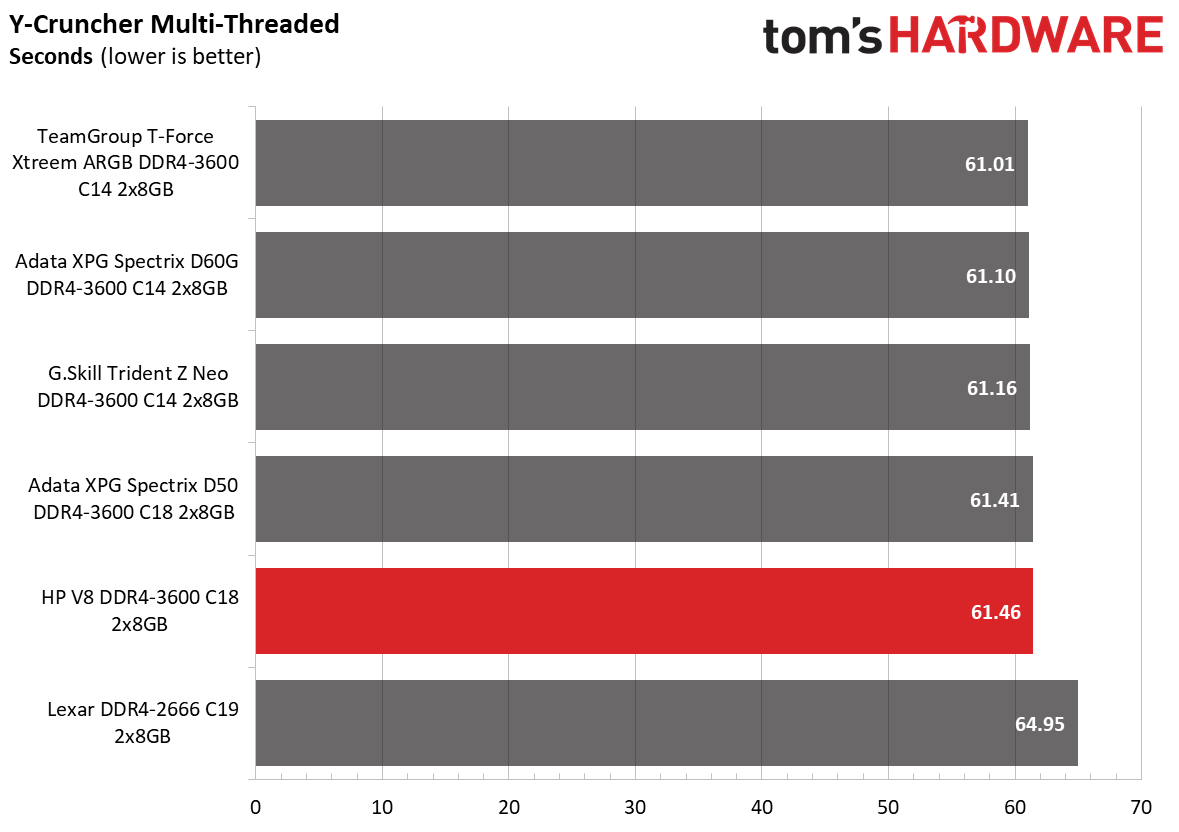
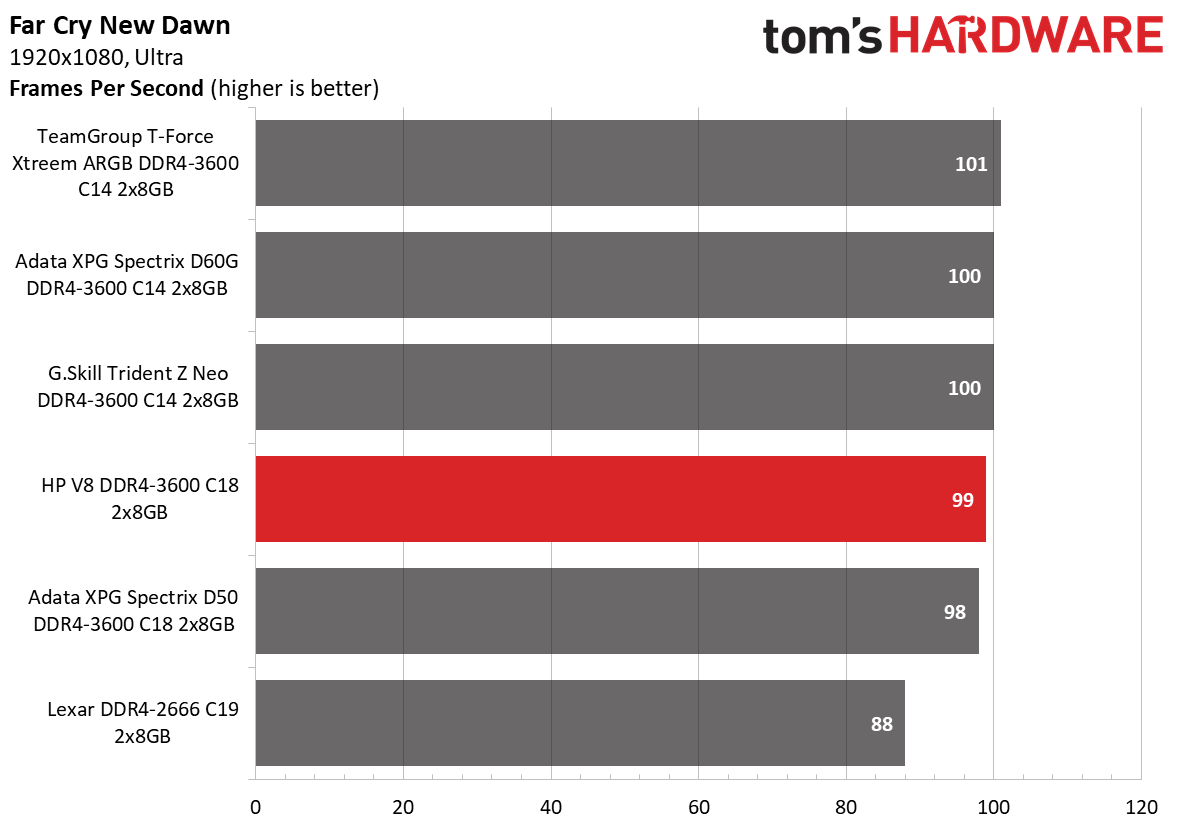
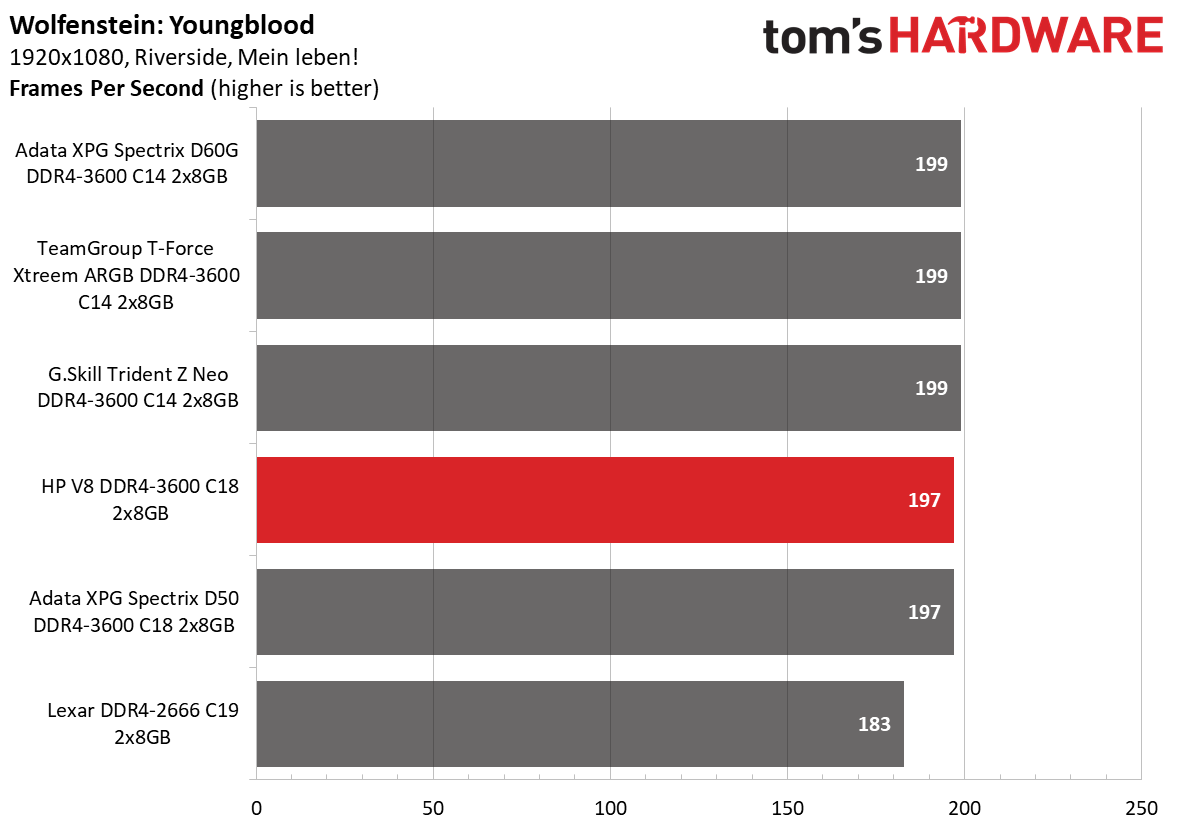
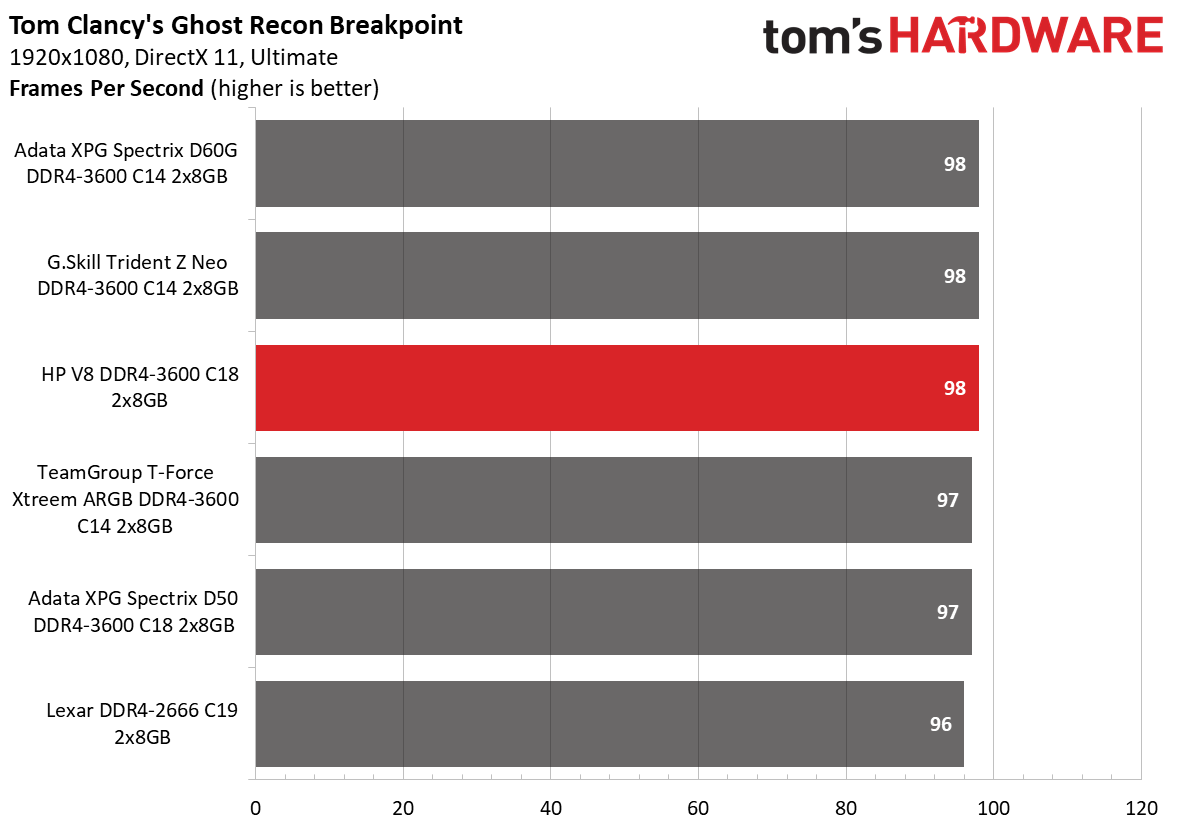
The V8's performance translates over to the AMD platform. However, the memory kit didn't stick out on any of the benchmarks with the AMD system. Gaming performance remained good as the V8 outshined the XPG Spectrix D50 once more.
Overclocking and Latency Tuning
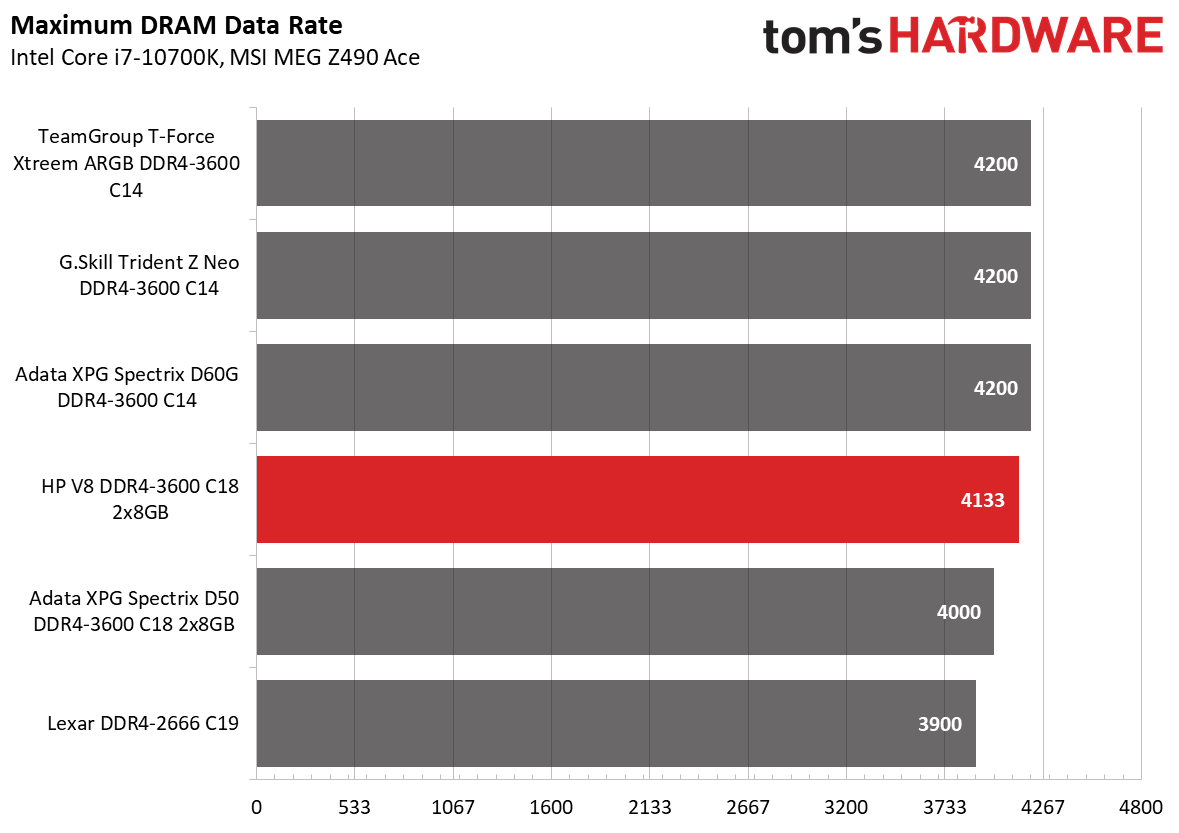
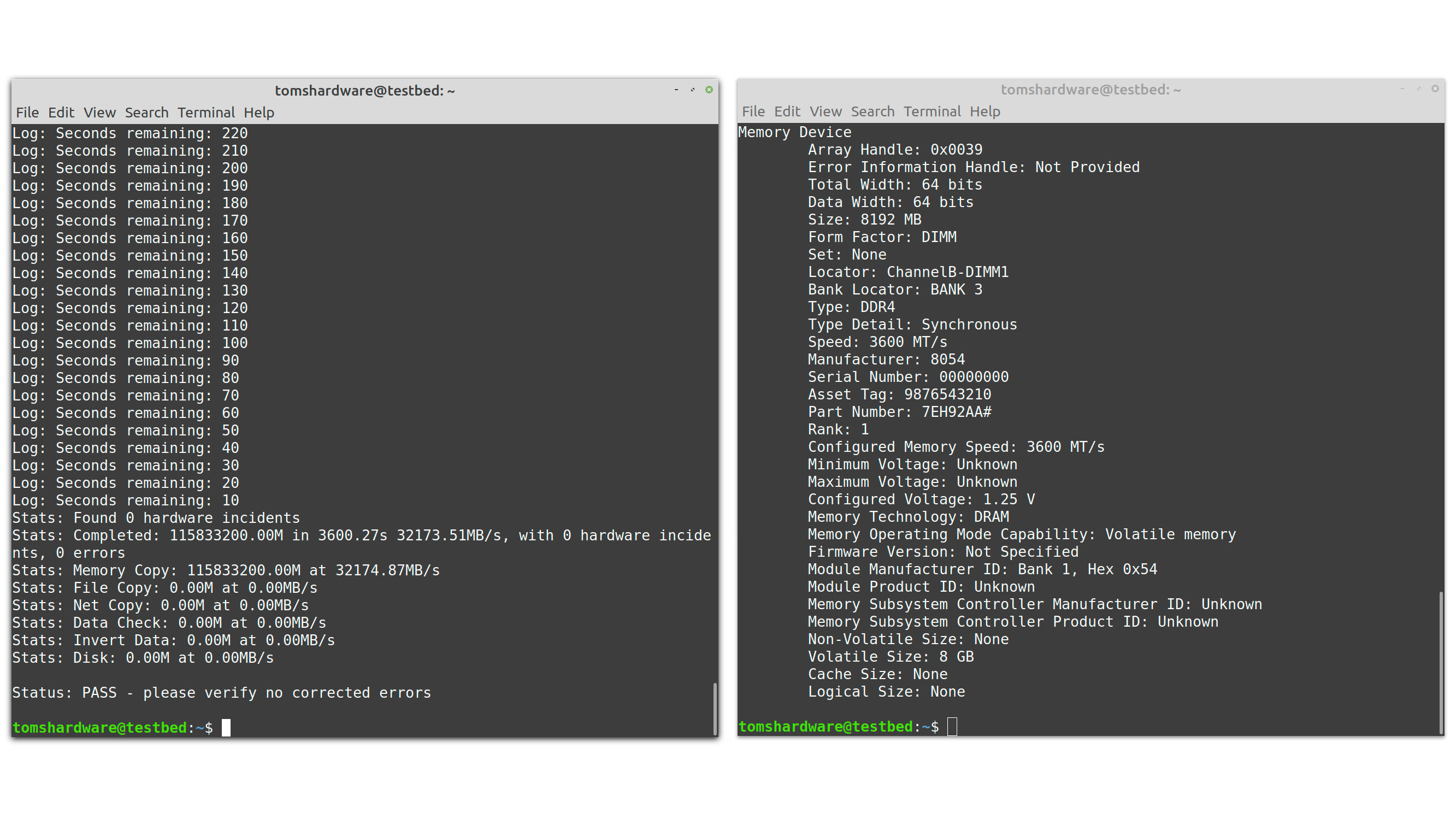
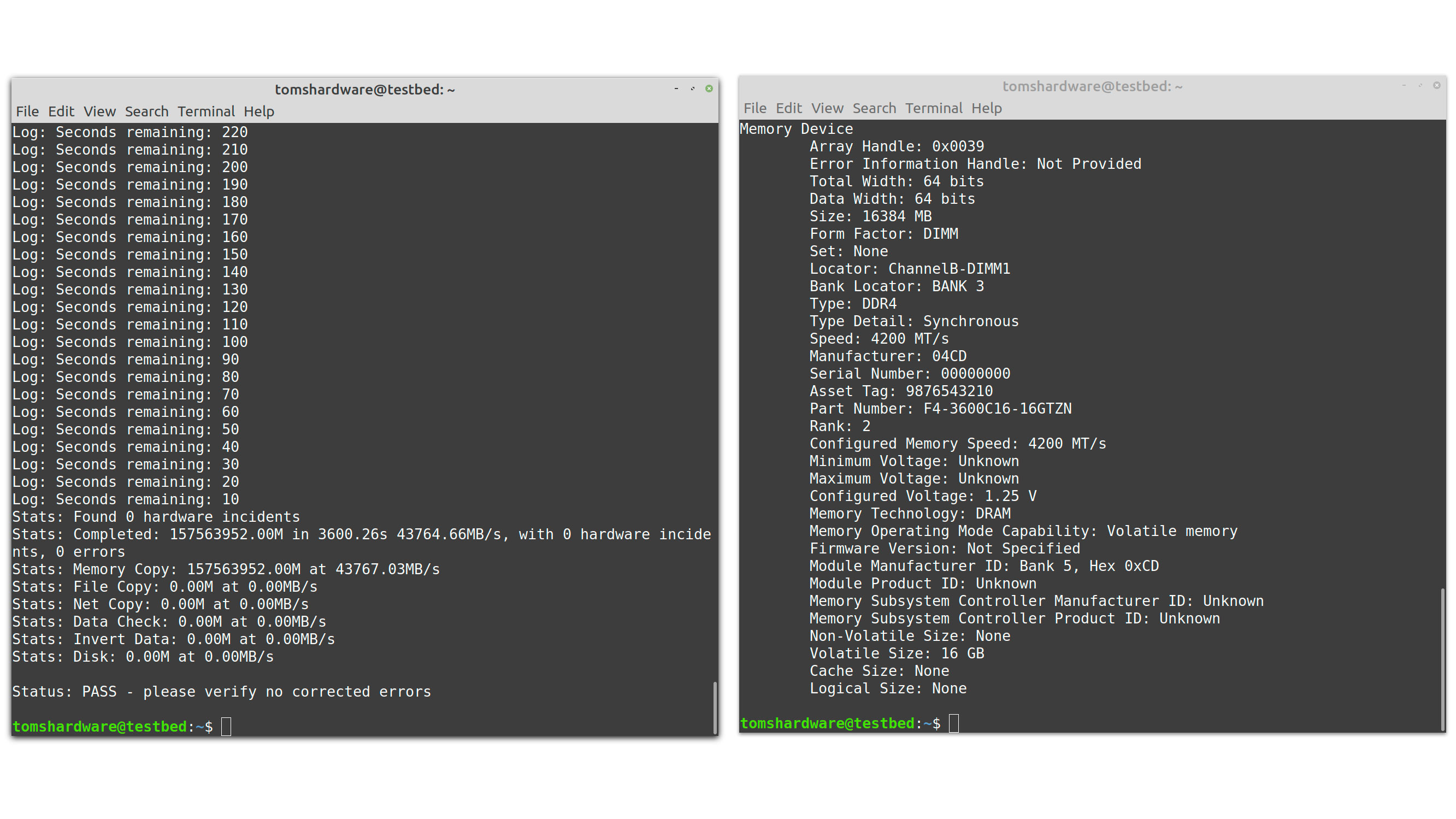
Hynix C-die is good for pushing high frequencies, and the V8 is proof of that. So far, the V8 is the only DDR4-3600 C18 memory kit out of our list to hit DDR4-4133. It did so with a 1.45V DRAM voltage and relaxed timings of 18-22-22-42.
Lowest Stable Timings
| Memory Kit | DDR4-3600 (1.45V) | DDR4-3900 (1.45V) | DDR4-4000 (1.45V) | DDR4-4133 (1.45V) | DDR4-4200 (1.45V) |
|---|---|---|---|---|---|
| TeamGroup T-Force Xtreem ARGB DDR4-3600 C14 | 13-14-14-35 (2T) | N/A | N/A | N/A | 19-19-19-39 (2T) |
| G.Skill Trident Z Neo DDR4-3600 C14 | 13-16-16-36 (2T) | N/A | N/A | N/A | 19-19-19-39 (2T) |
| Adata XPG Spectrix D60G DDR4-3600 C14 | 13-15-15-35 (2T) | N/A | N/A | N/A | 20-19-19-39 (2T) |
| Adata XPG Spectrix D50 DDR4-3600 C18 | 14-19-19-39 (2T) | N/A | 18-22-22-42 | N/A | N/A |
| HP V8 DDR4-3600 C18 | 14-19-19-39 (2T) | N/A | N/A | 18-22-22-42 (2T) | N/A |
| Lexar DDR4-2666 C19 | 16-21-21-41 (2T) | 17-22-22-42 (2T) | N/A | N/A | N/A |
Similar to the XPG Spectrix D50, the V8 had no problems running with 14-19-19-39 timings at DDR4-3600 as long as you pump 1.45V into the memory modules.
Bottom Line
The V8 DDR4-3600 C18 performed to the standards that you would expect from a memory kit in this category. There are two principal areas for improvement, though. For starters, the HP V8 DDR4-3600 C18 (8MG07AA#ABC) memory kit presently retails for $89.99. If you look around the market, the V8's pricing is somewhere in the middle range compared to similar kits. A relatively small price reduction would certainly make the V8 look more attractive than the competition – the memory kit already has the rest down.
The fact that the V8 only comes with a limited five-year warranty doesn't inspire reliability, considering that the majority of, if not all, memory vendors back their memory kits with a lifetime warranty. Generally, memory doesn't just die out of nowhere, but knowing that your hardware is protected throughout its lifespan provides peace of mind.

Zhiye Liu is a news editor, memory reviewer, and SSD tester at Tom’s Hardware. Although he loves everything that’s hardware, he has a soft spot for CPUs, GPUs, and RAM.
